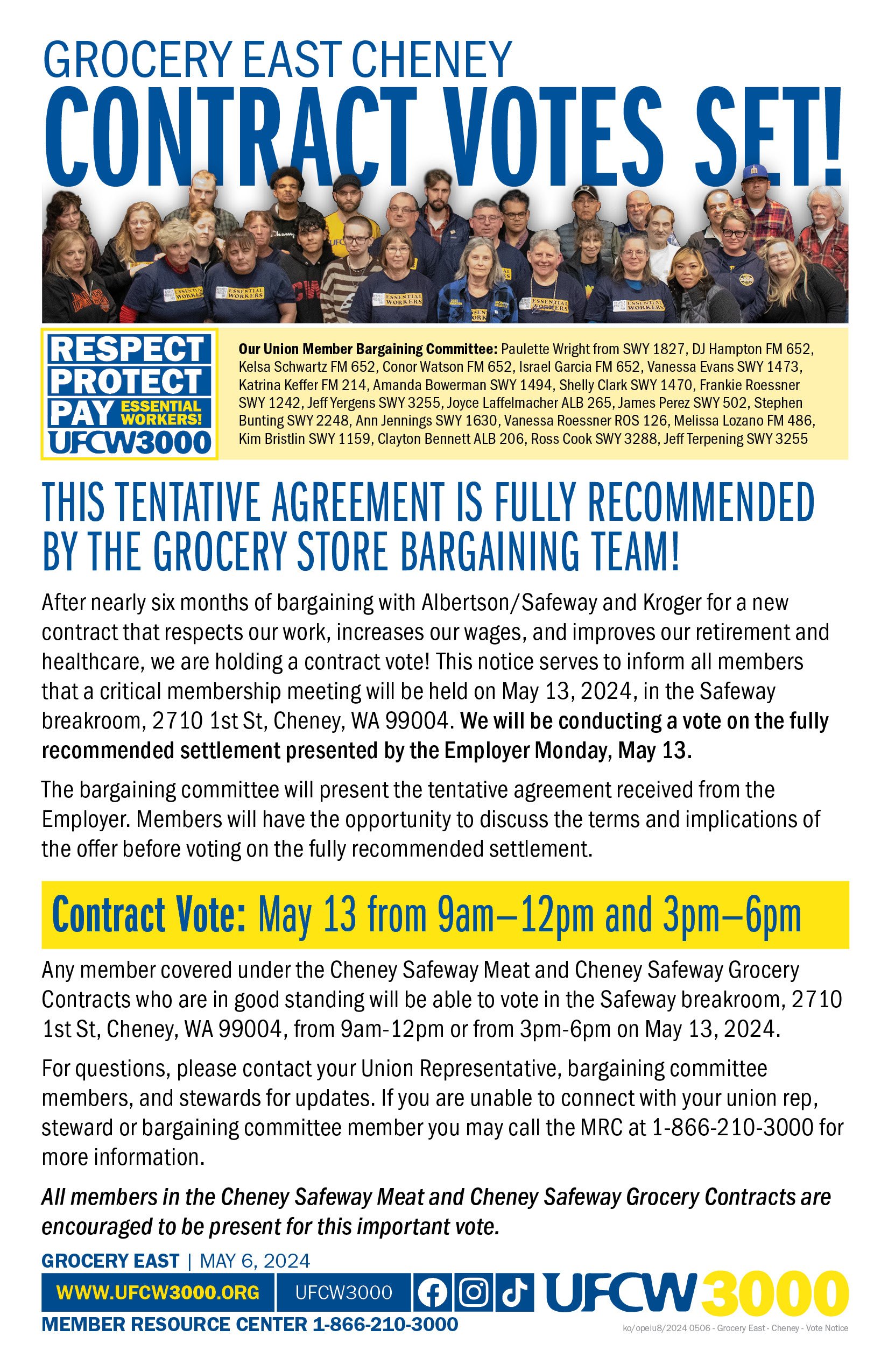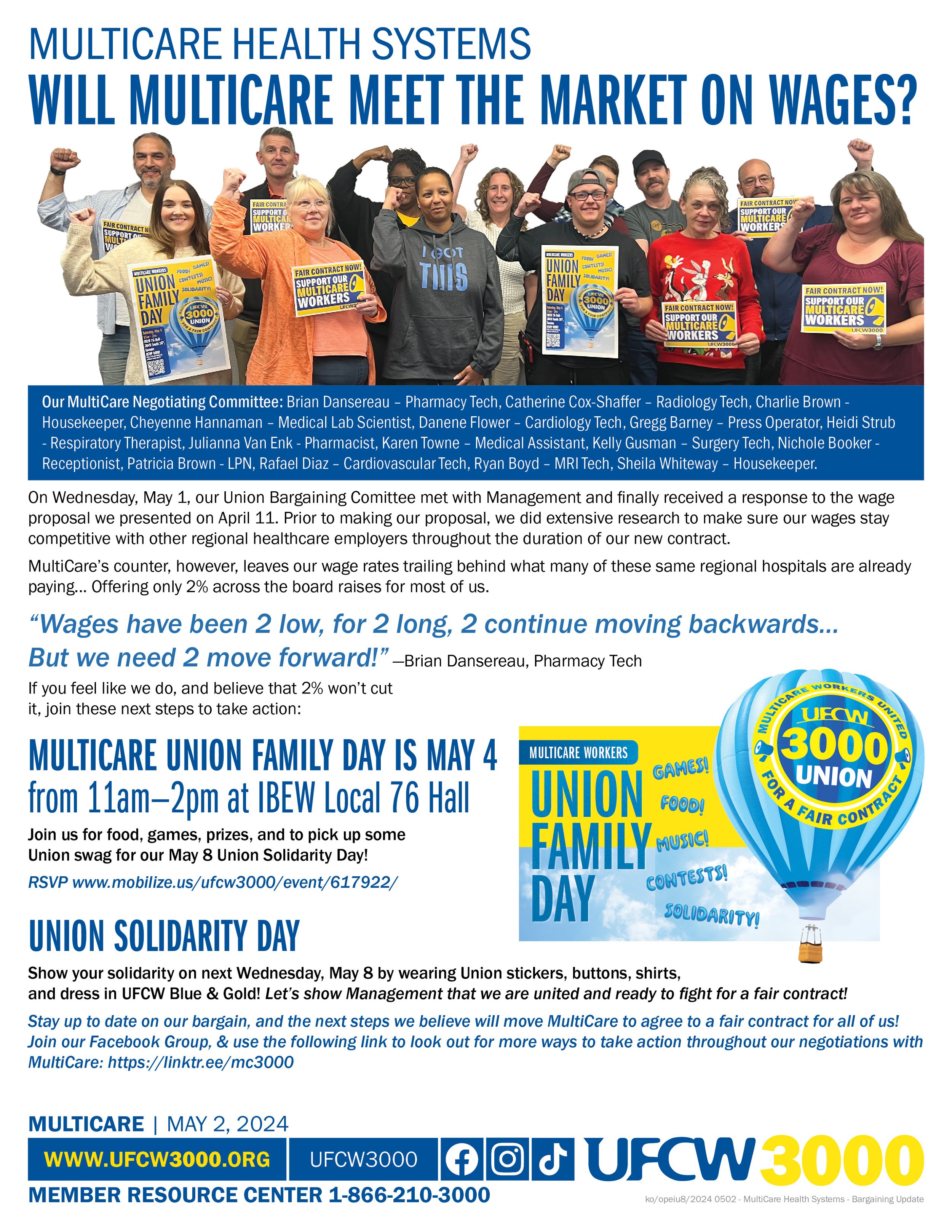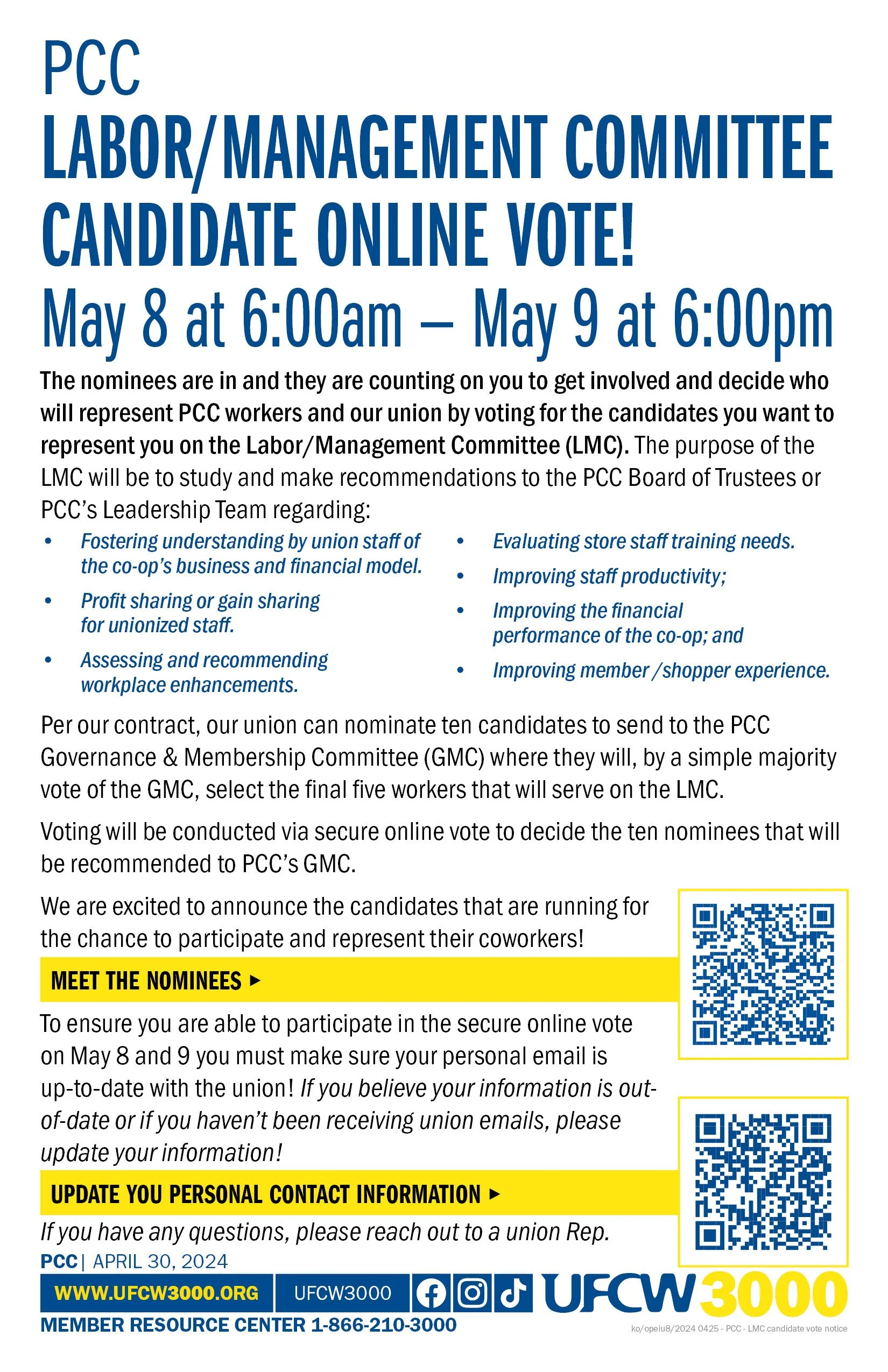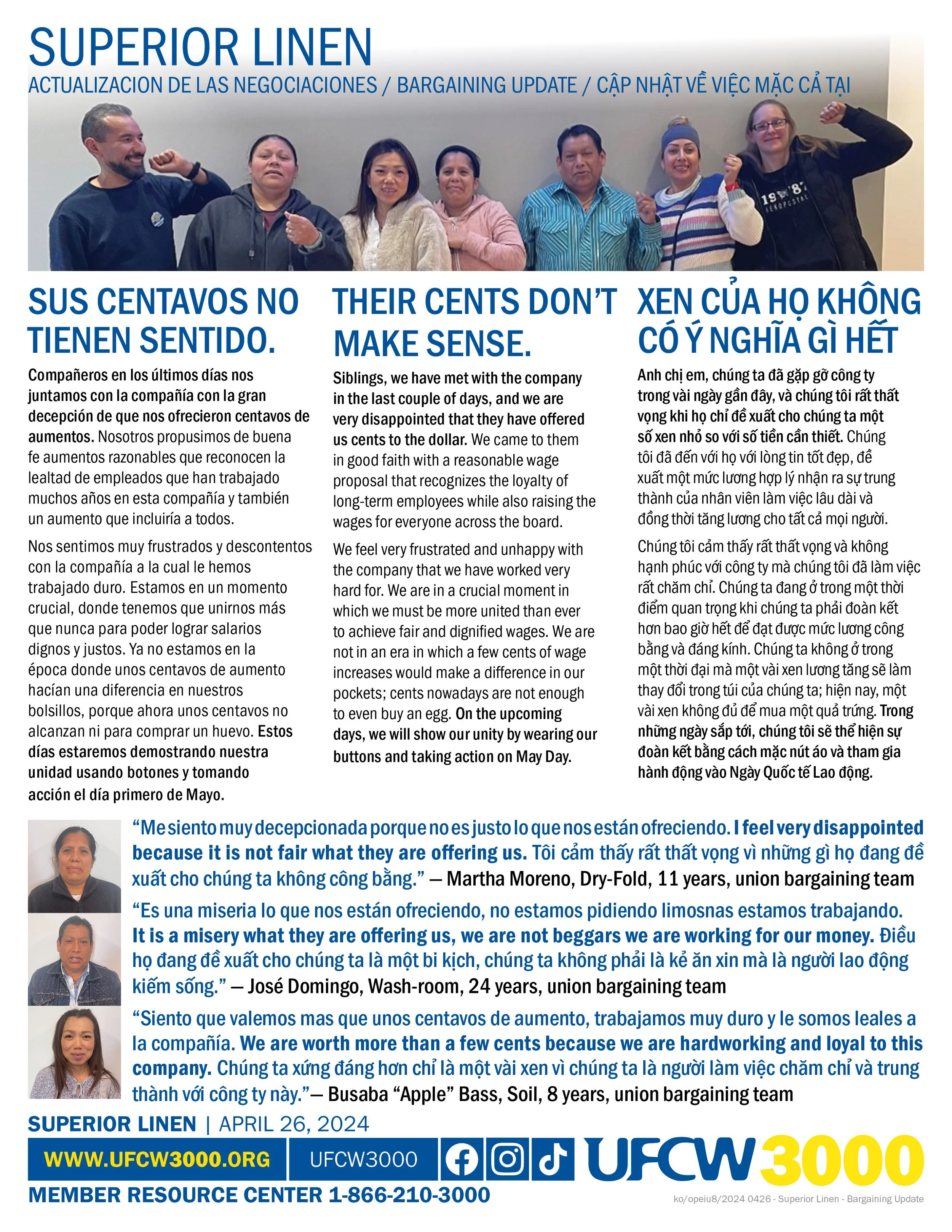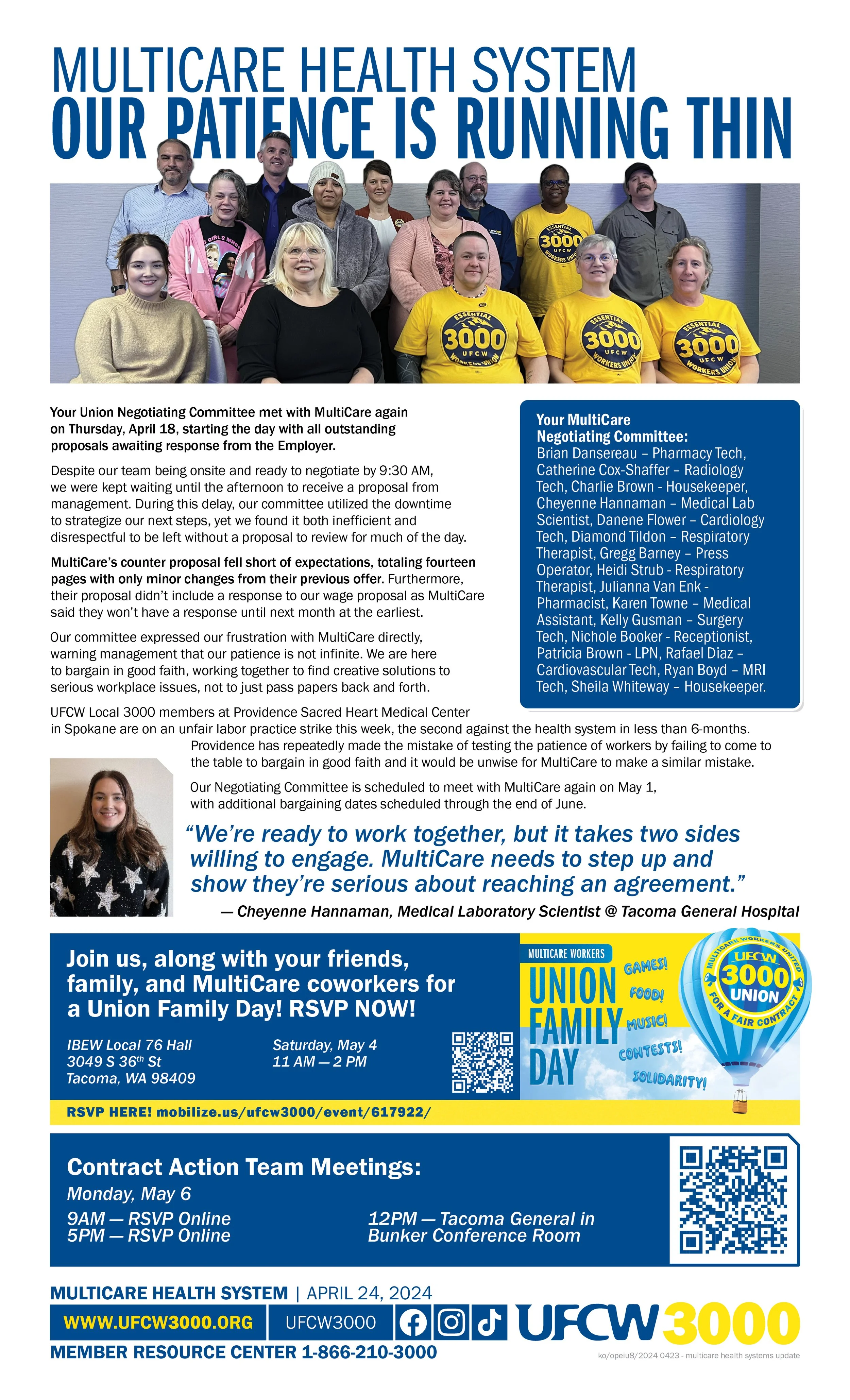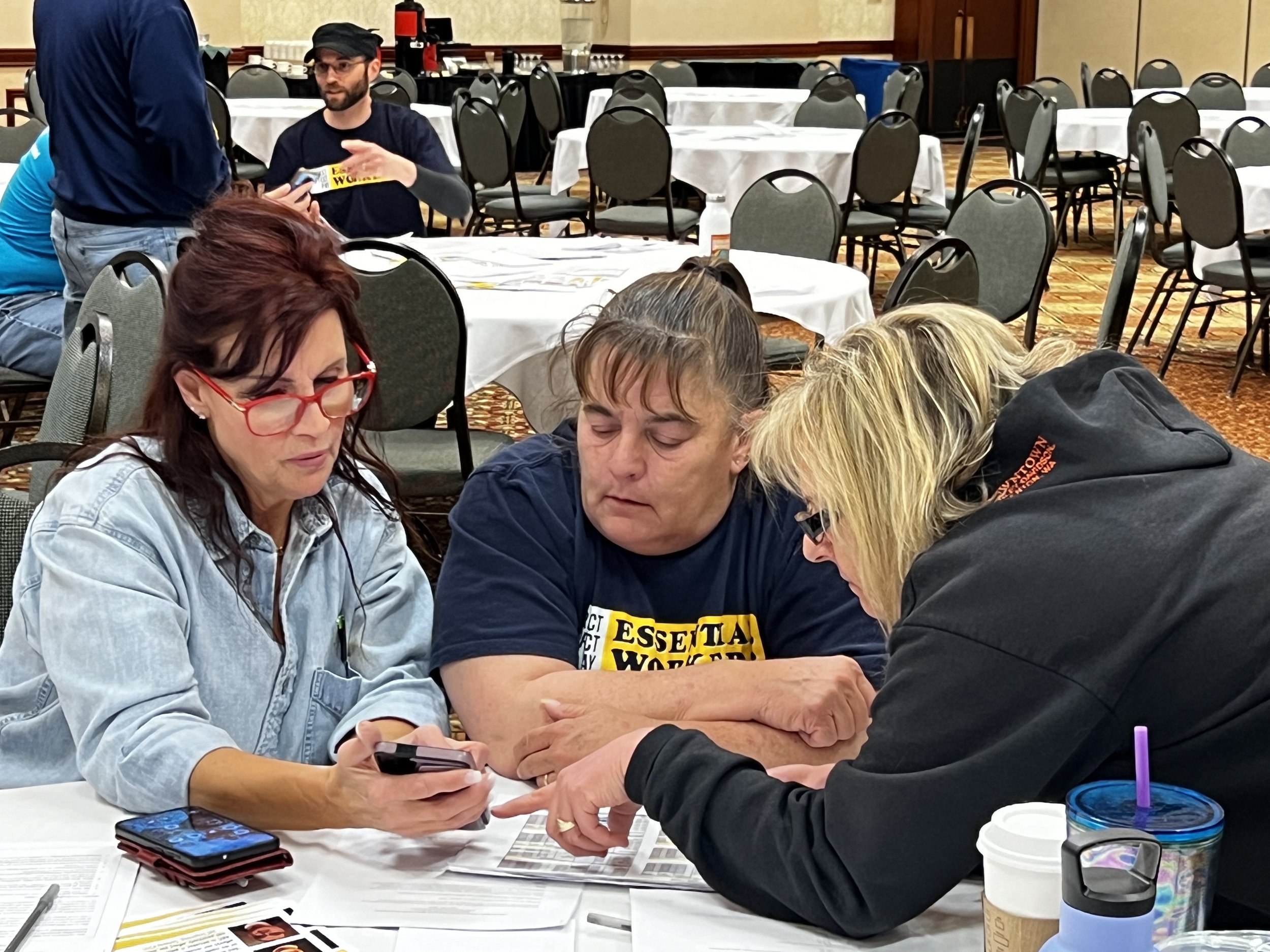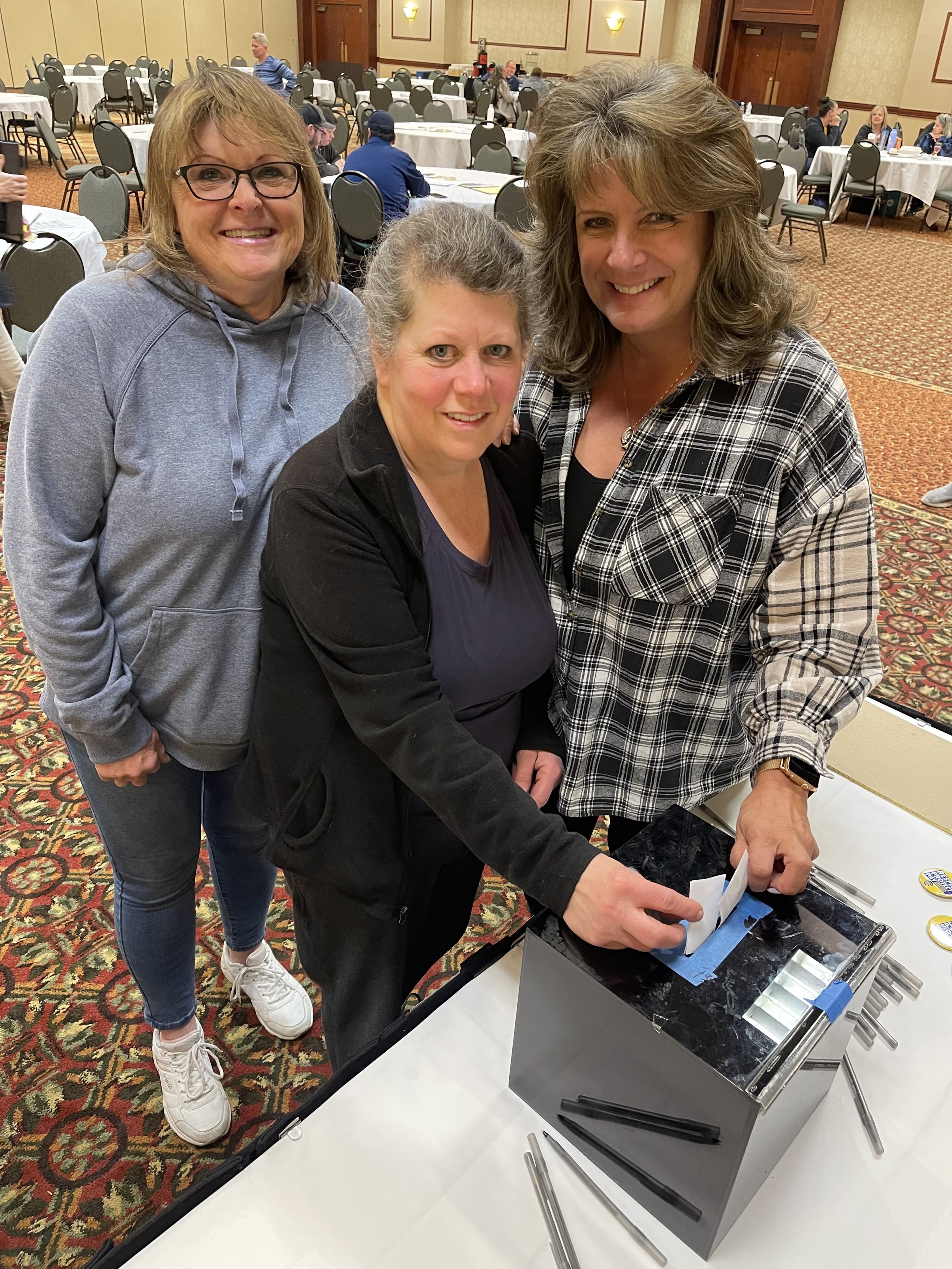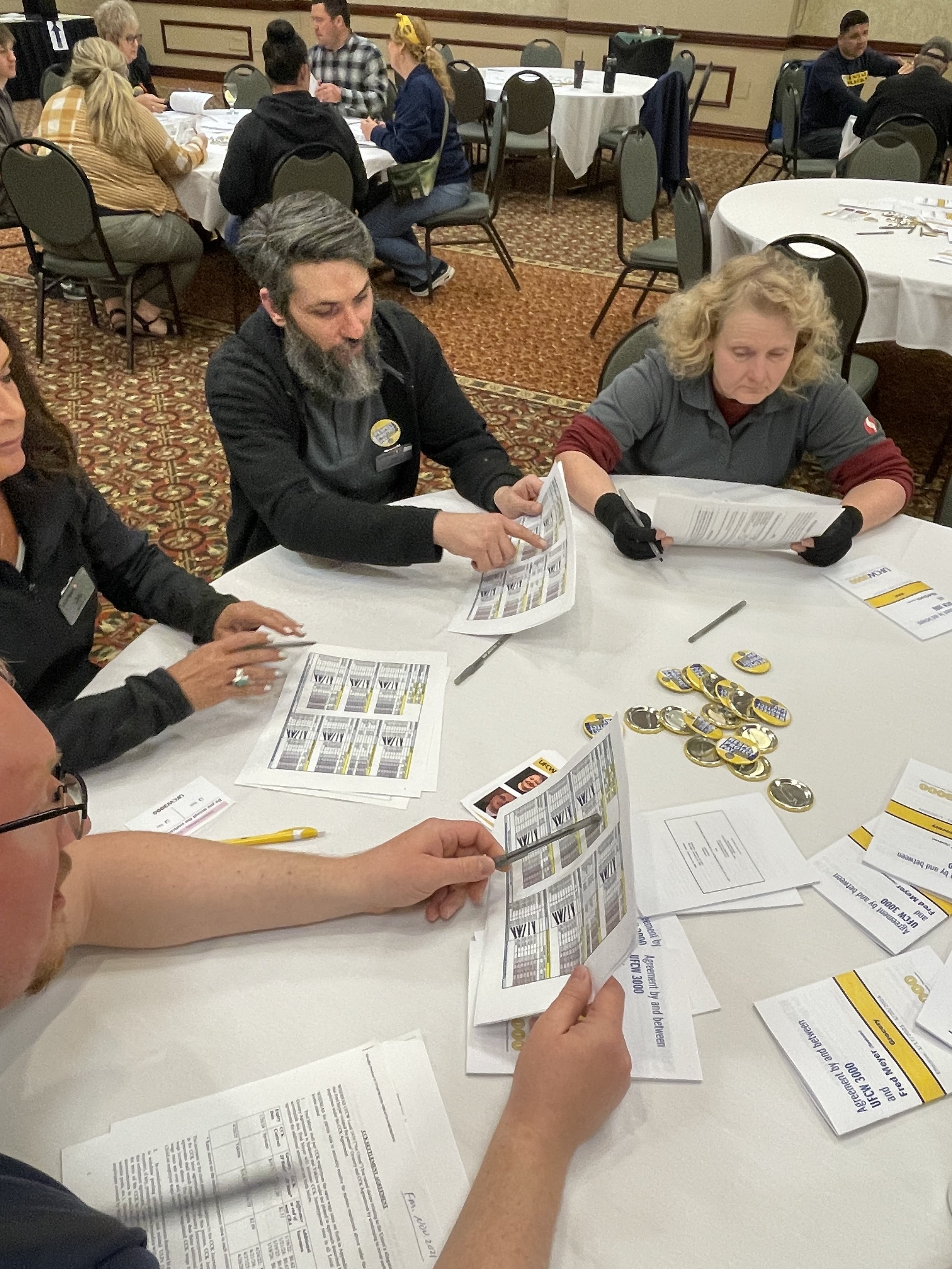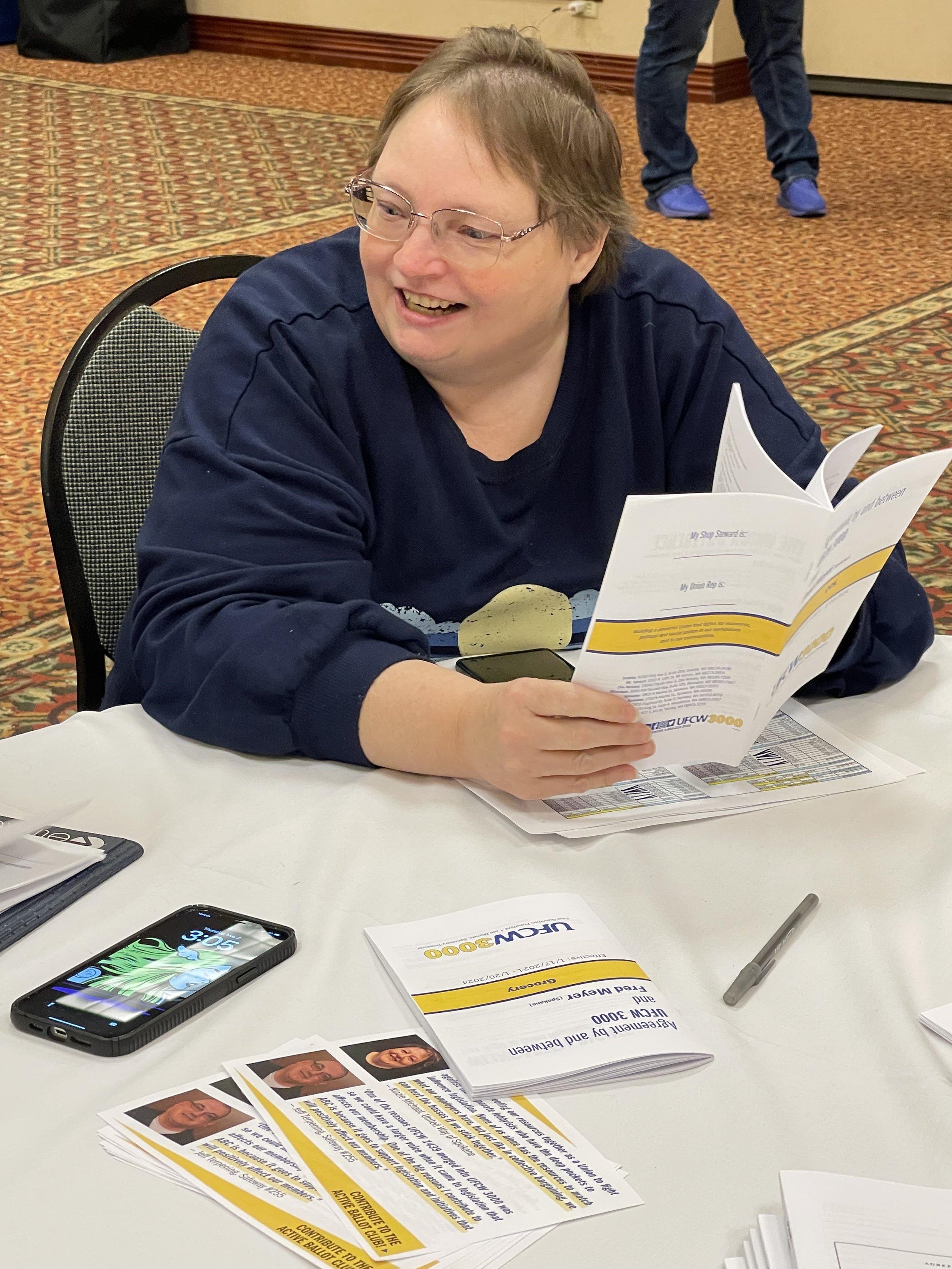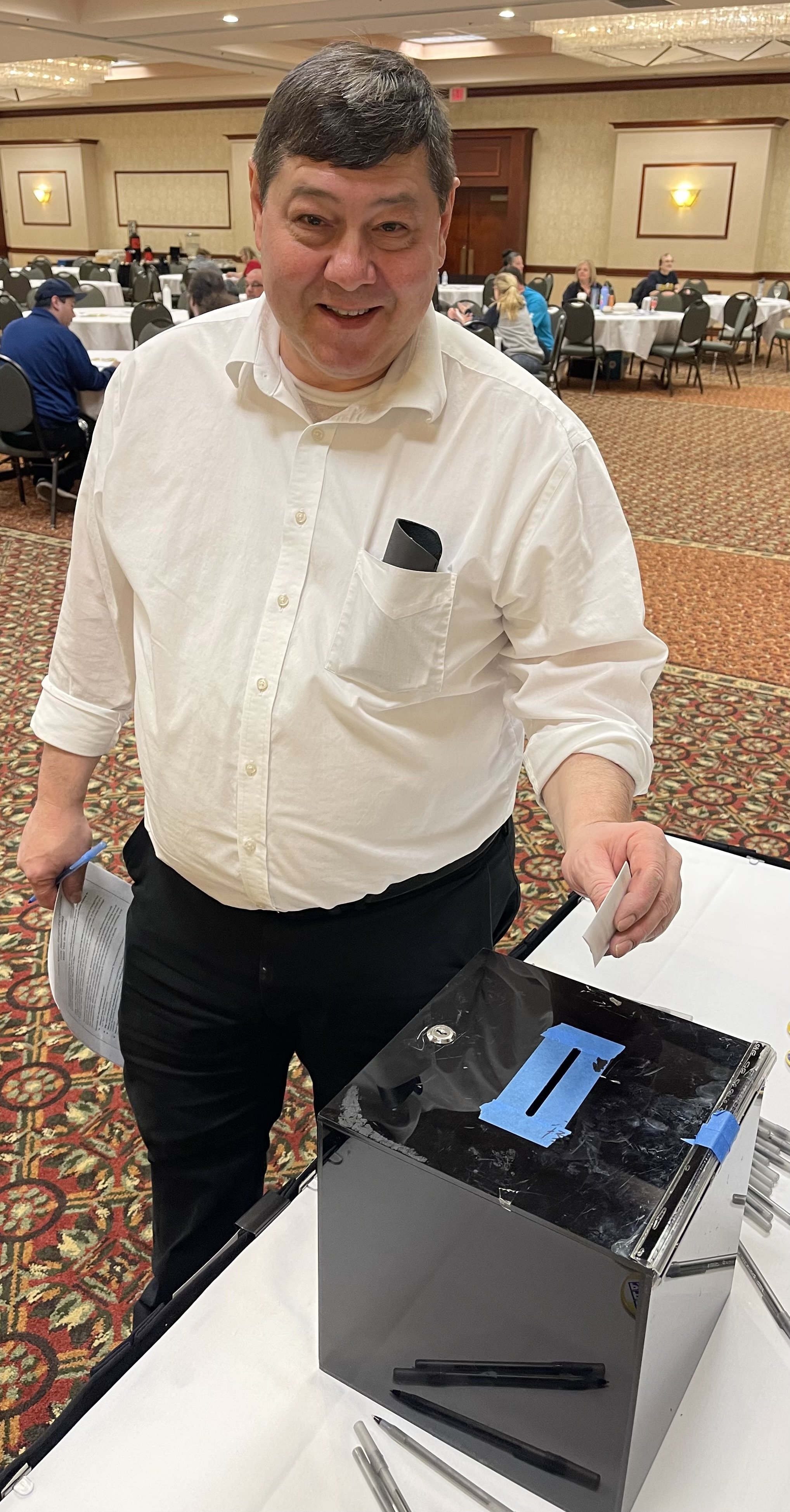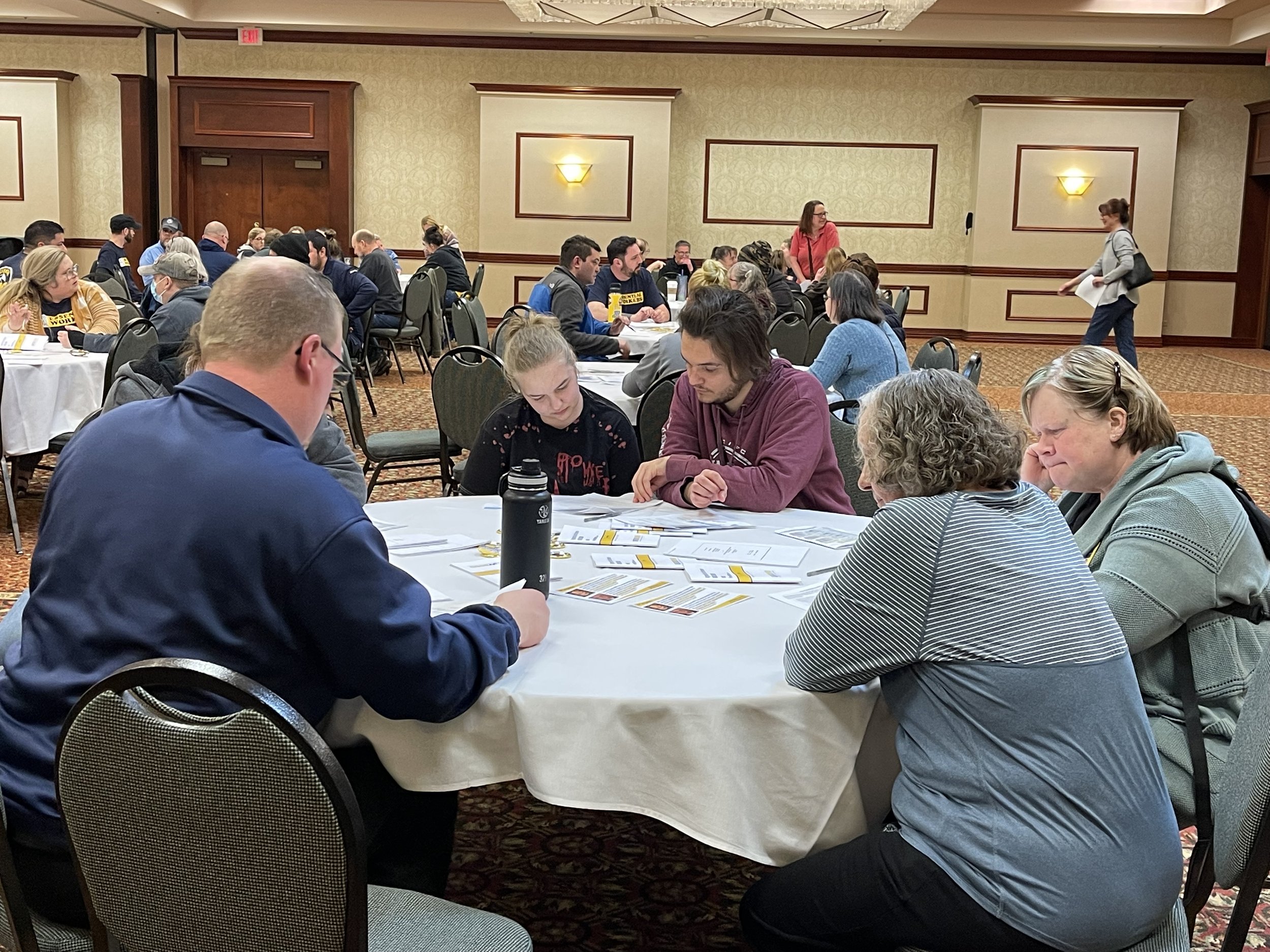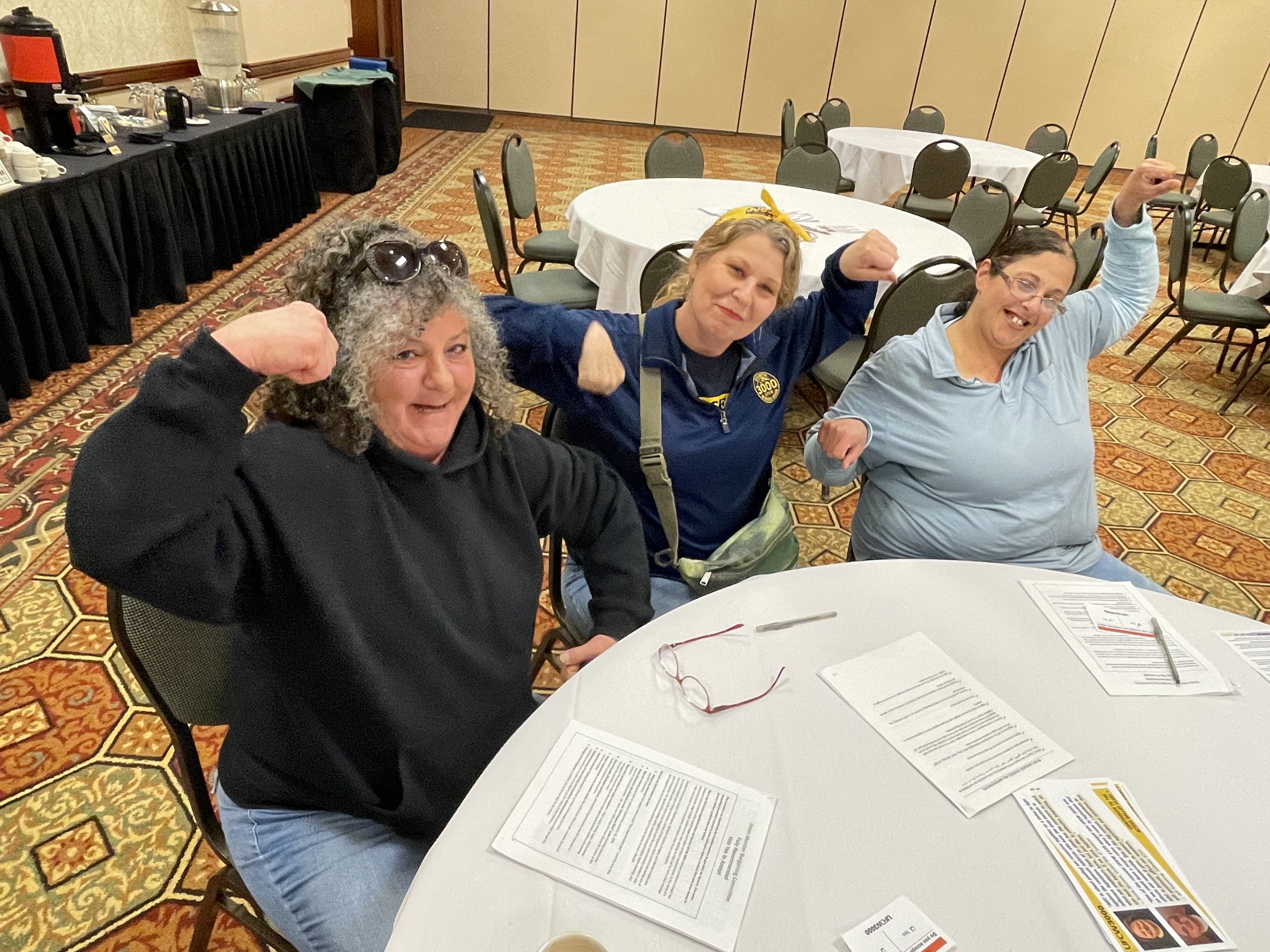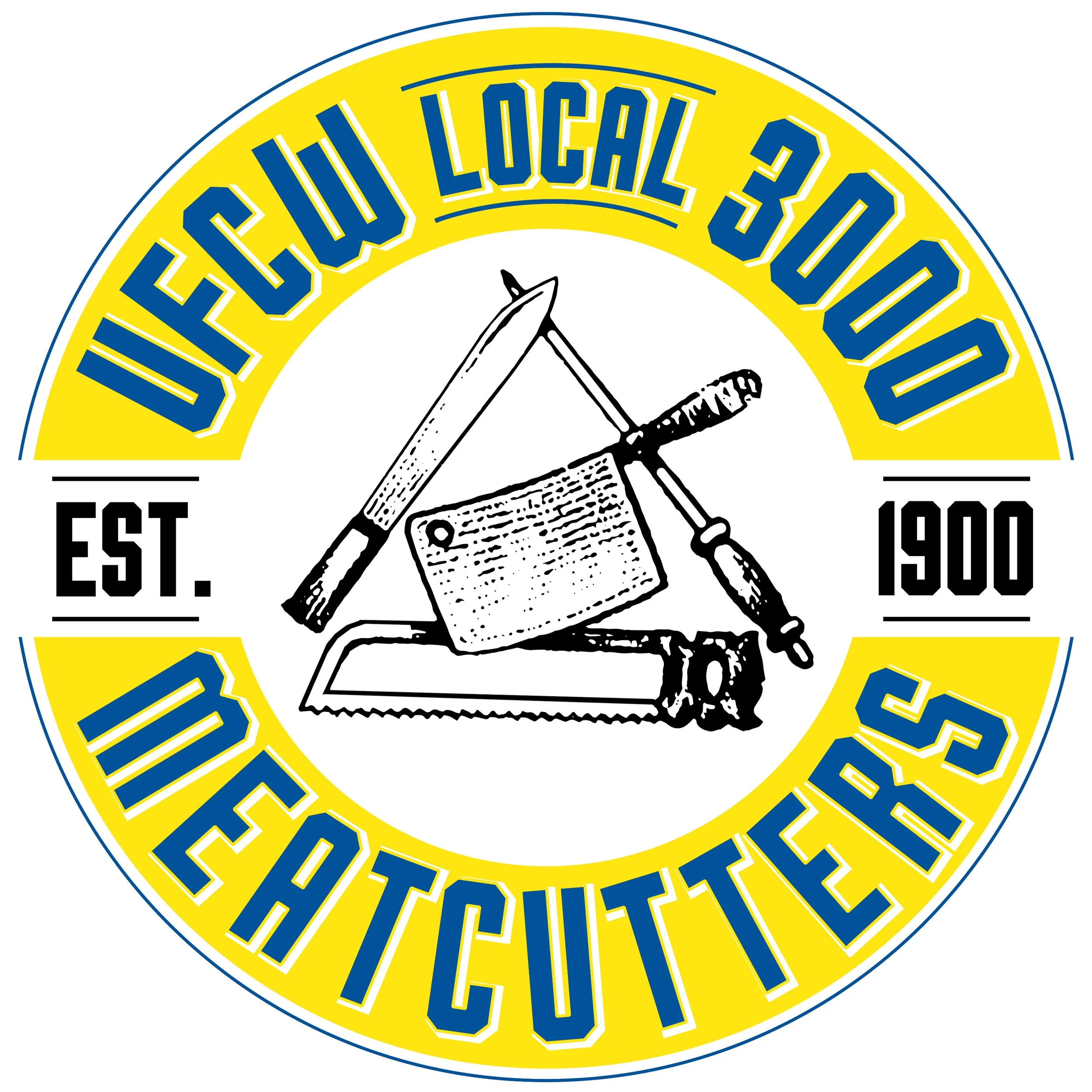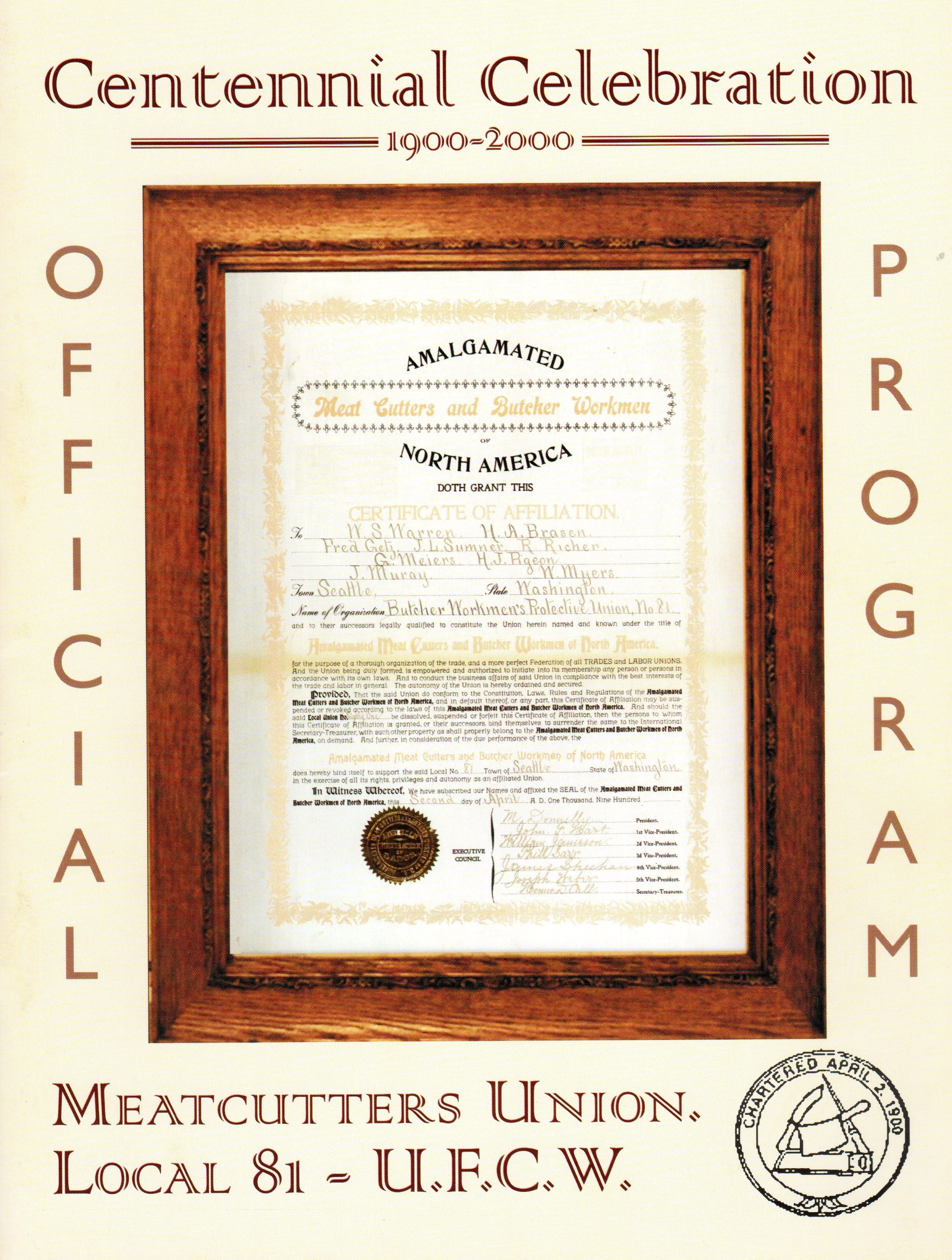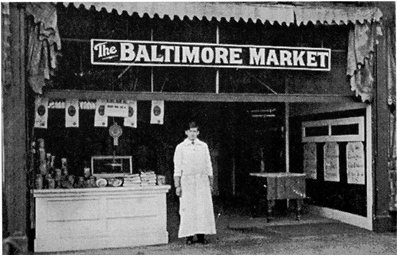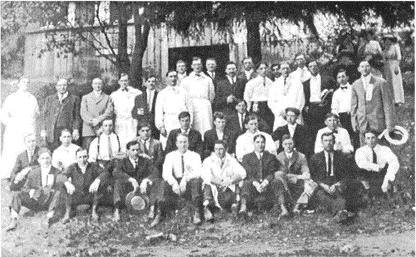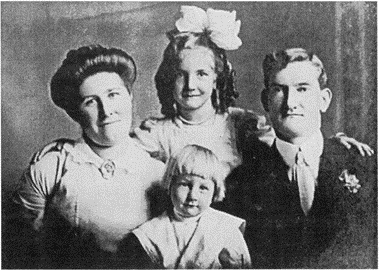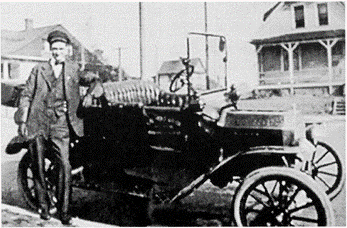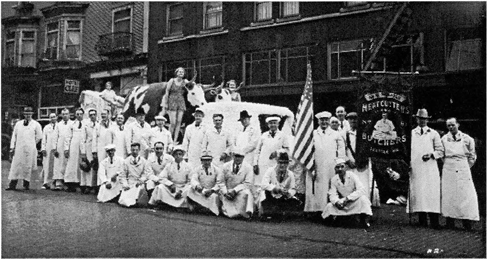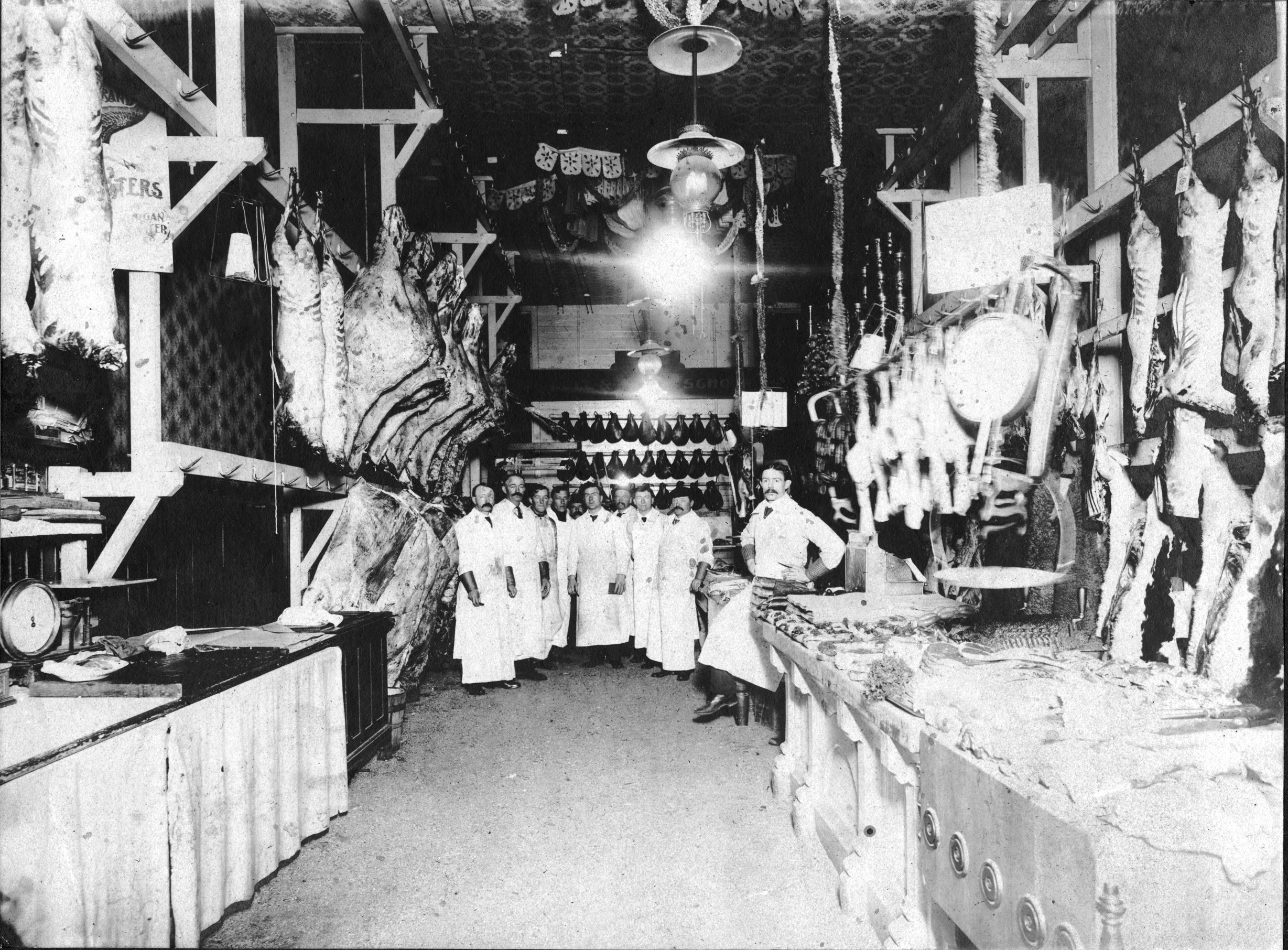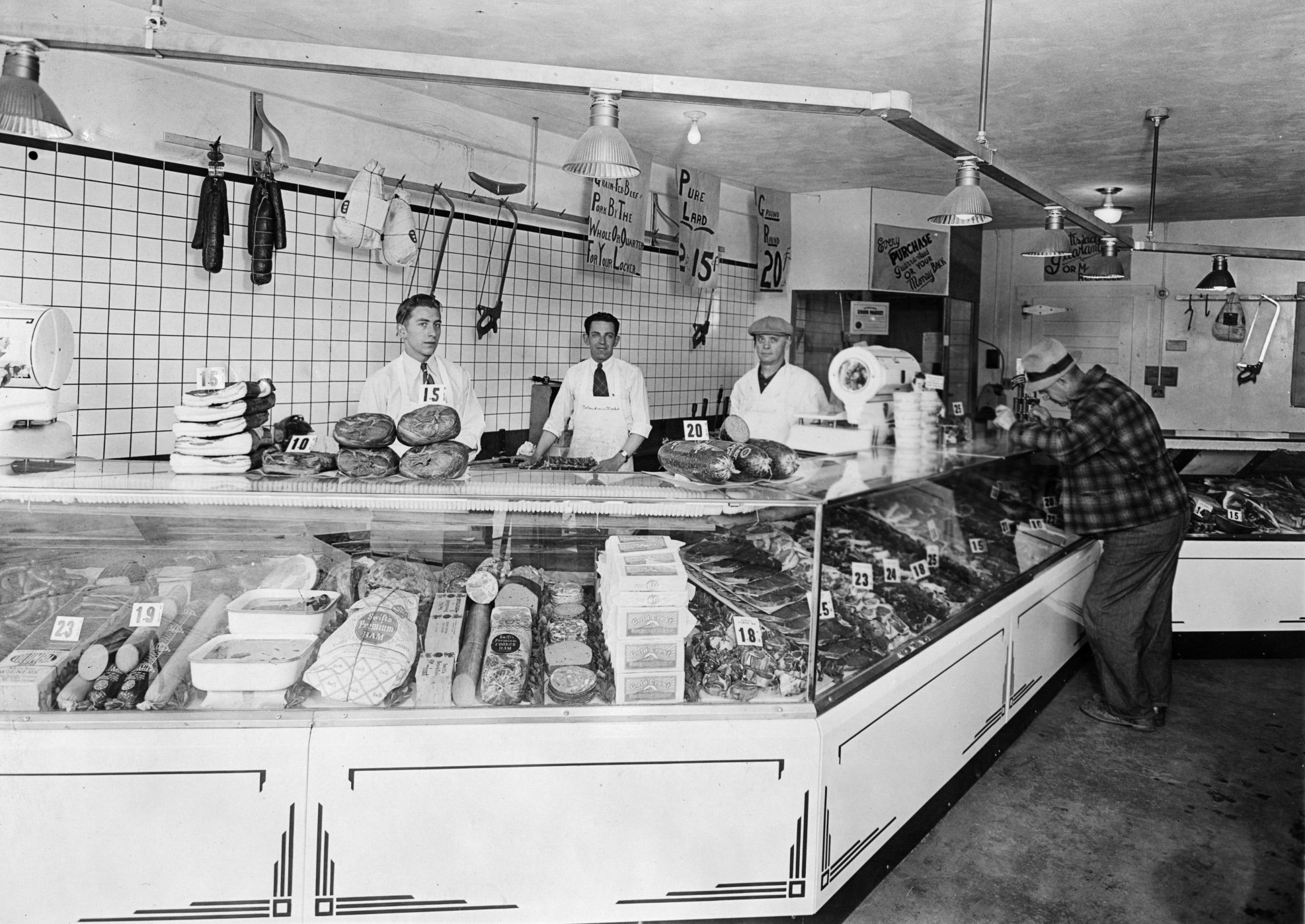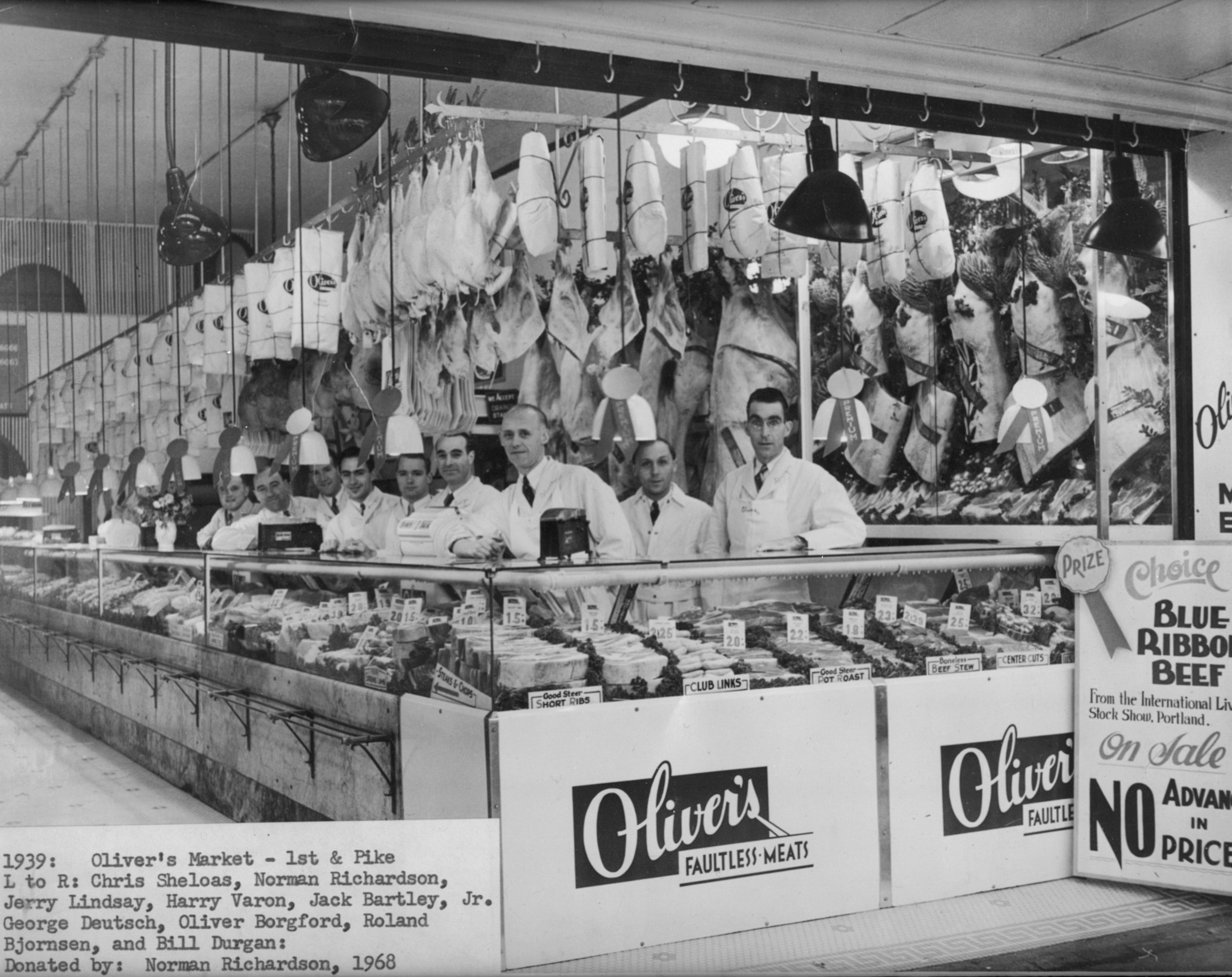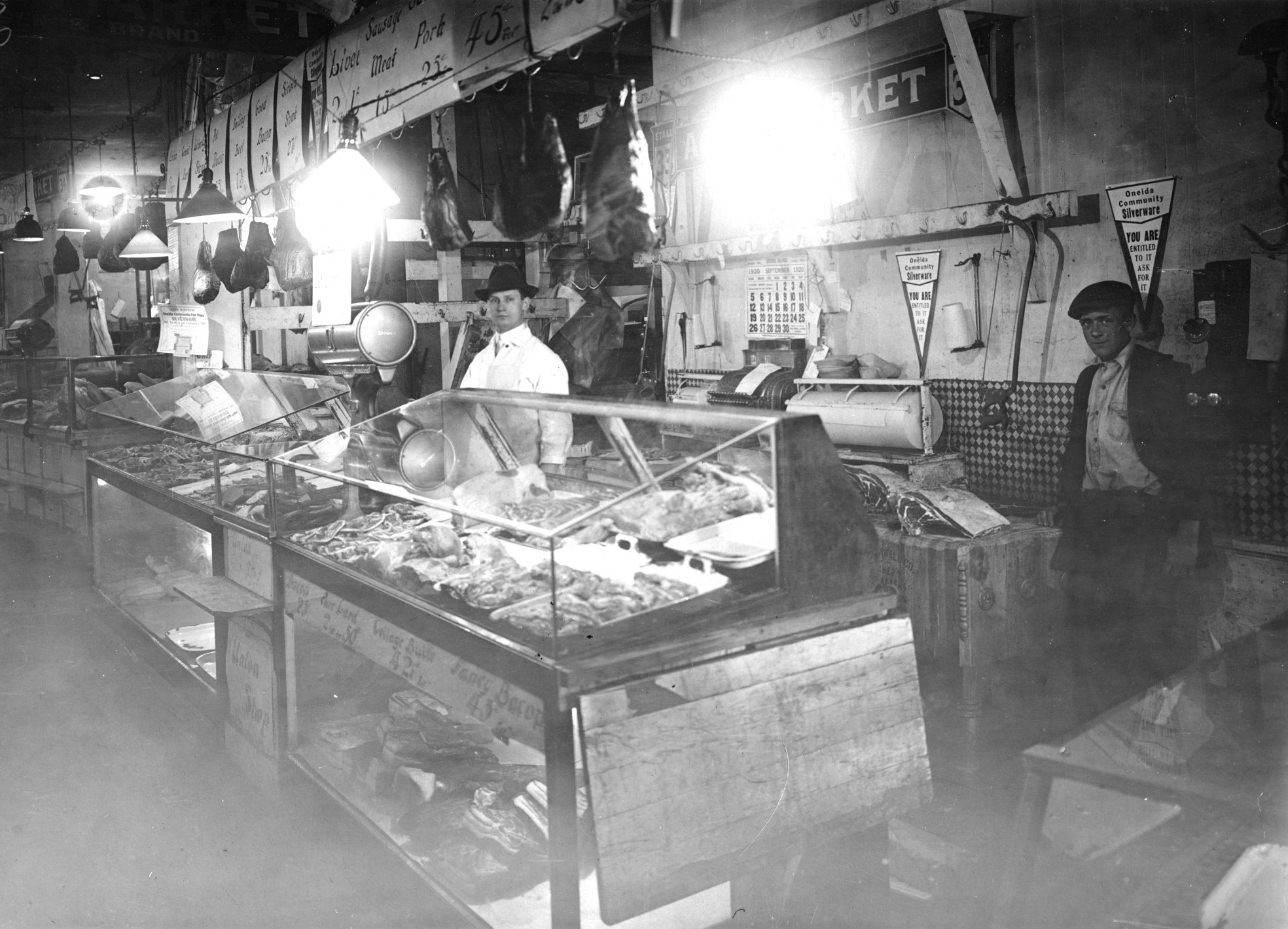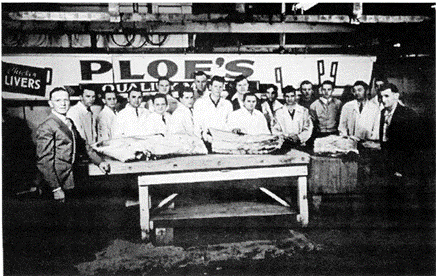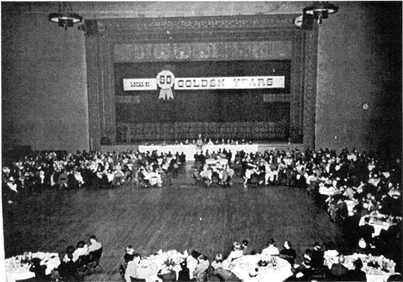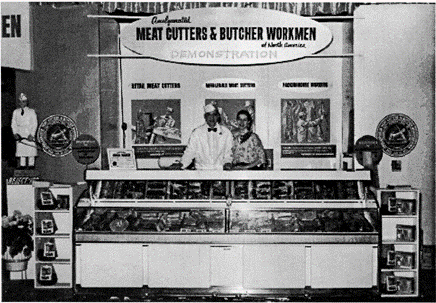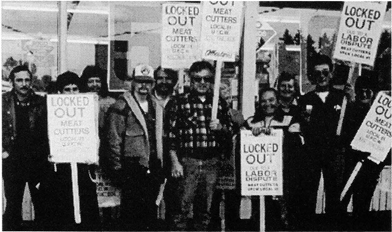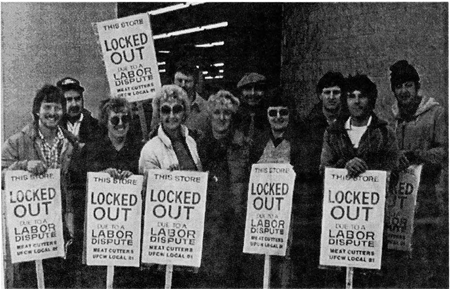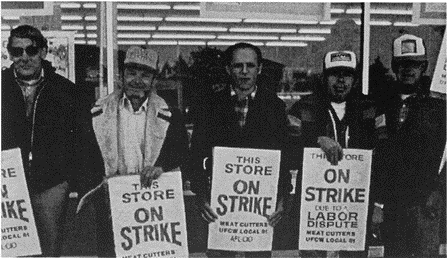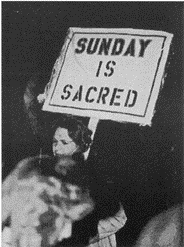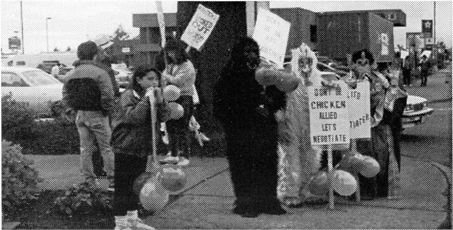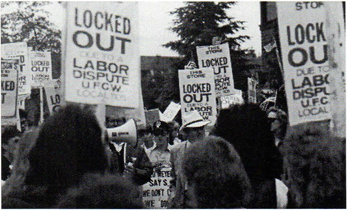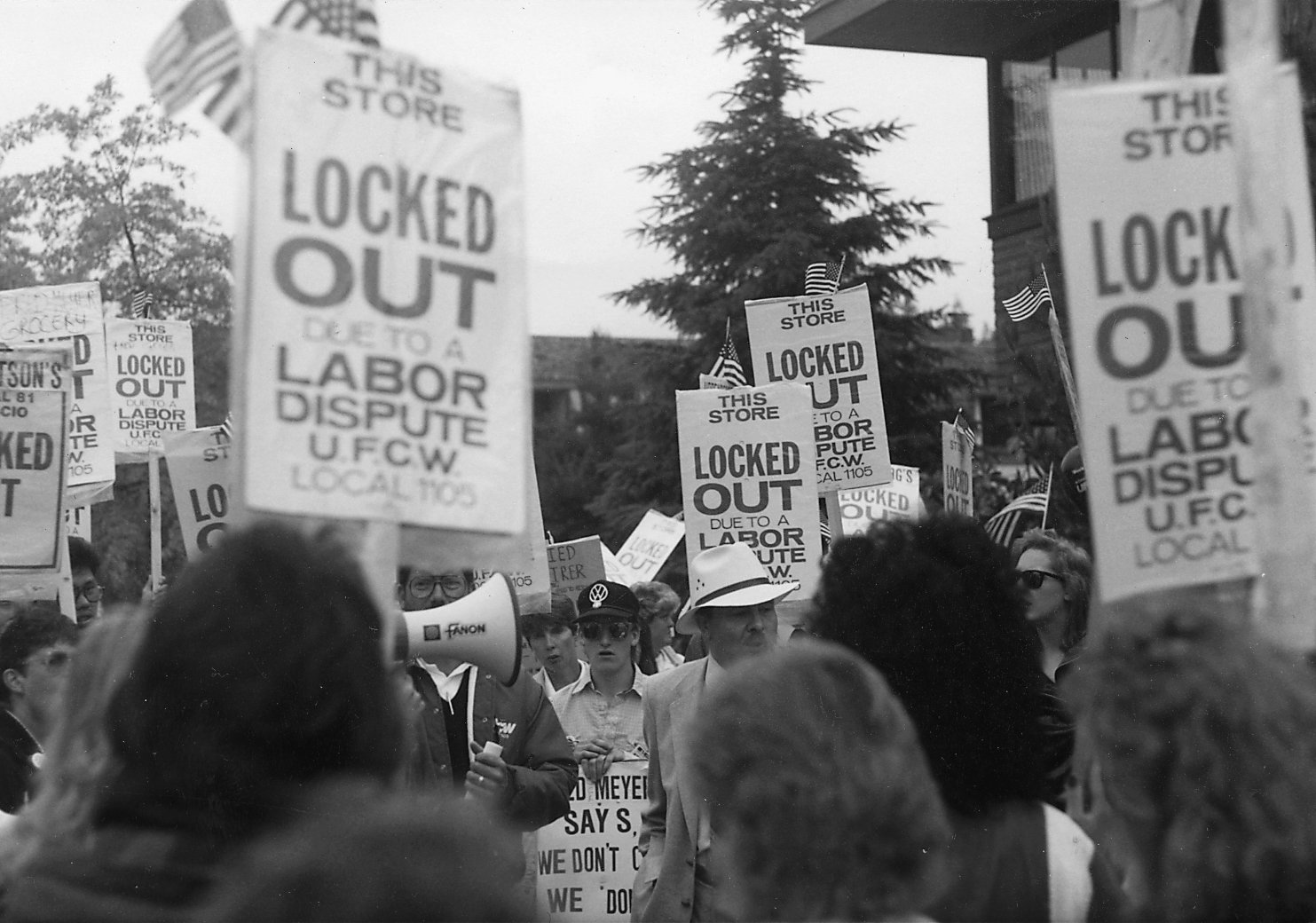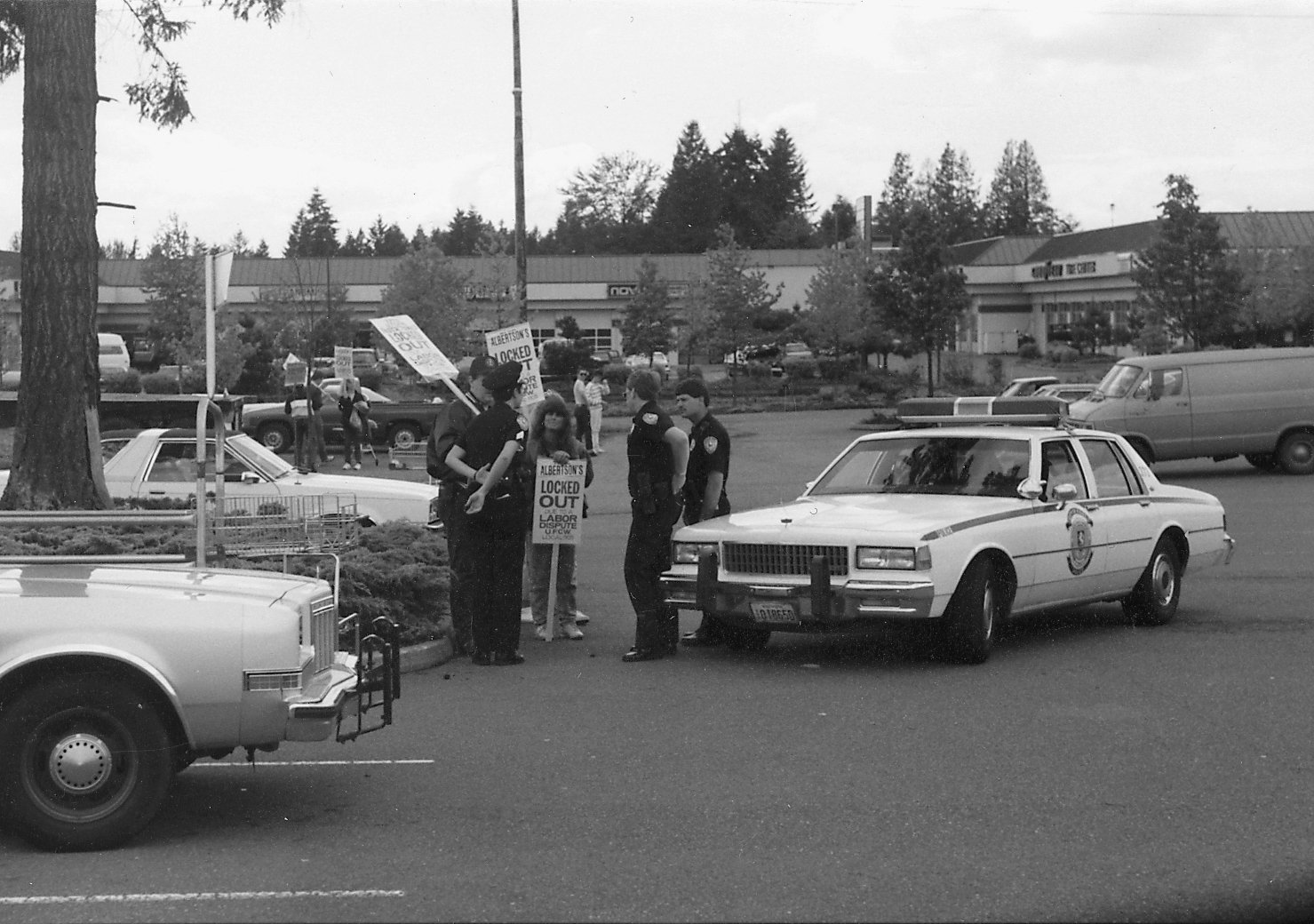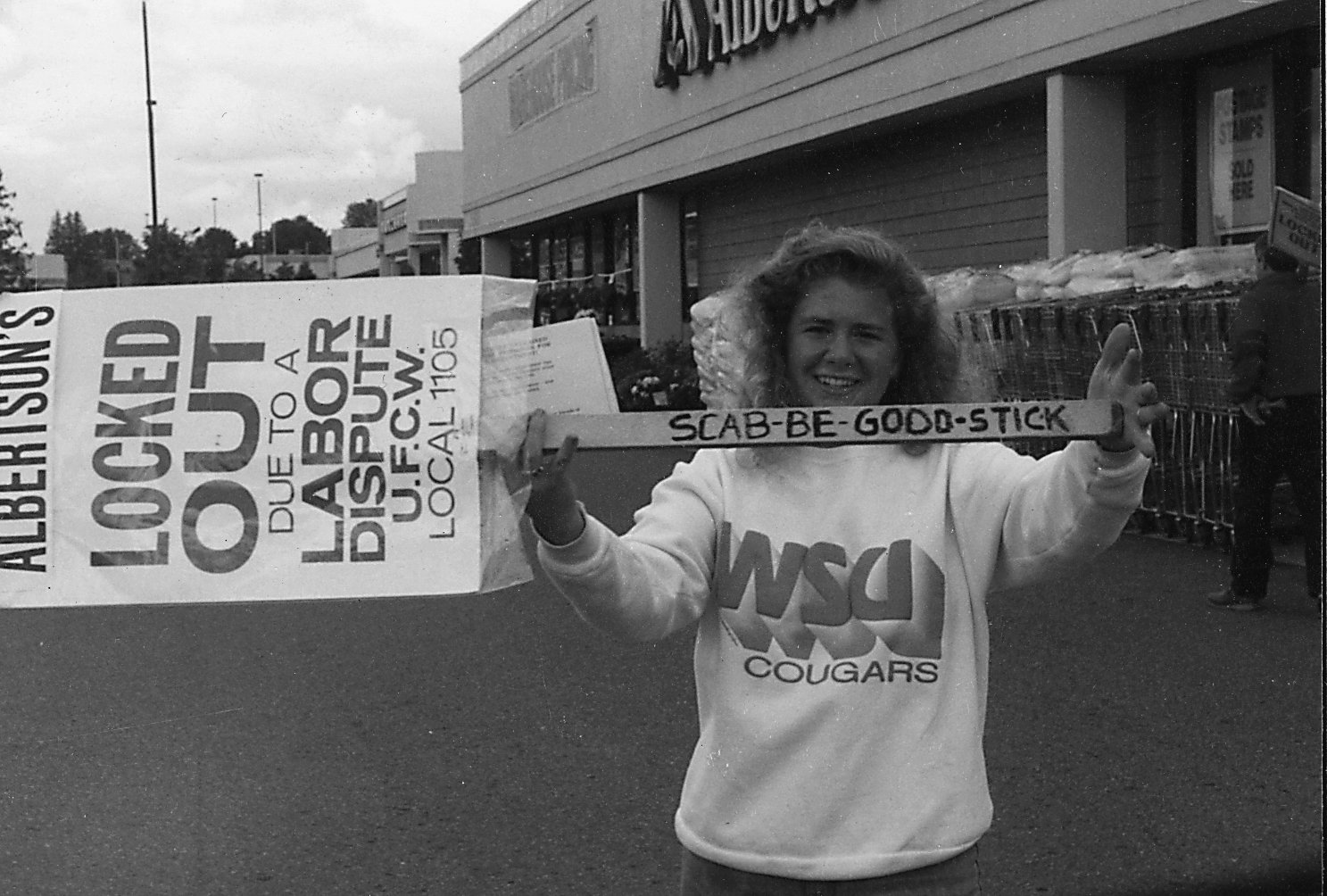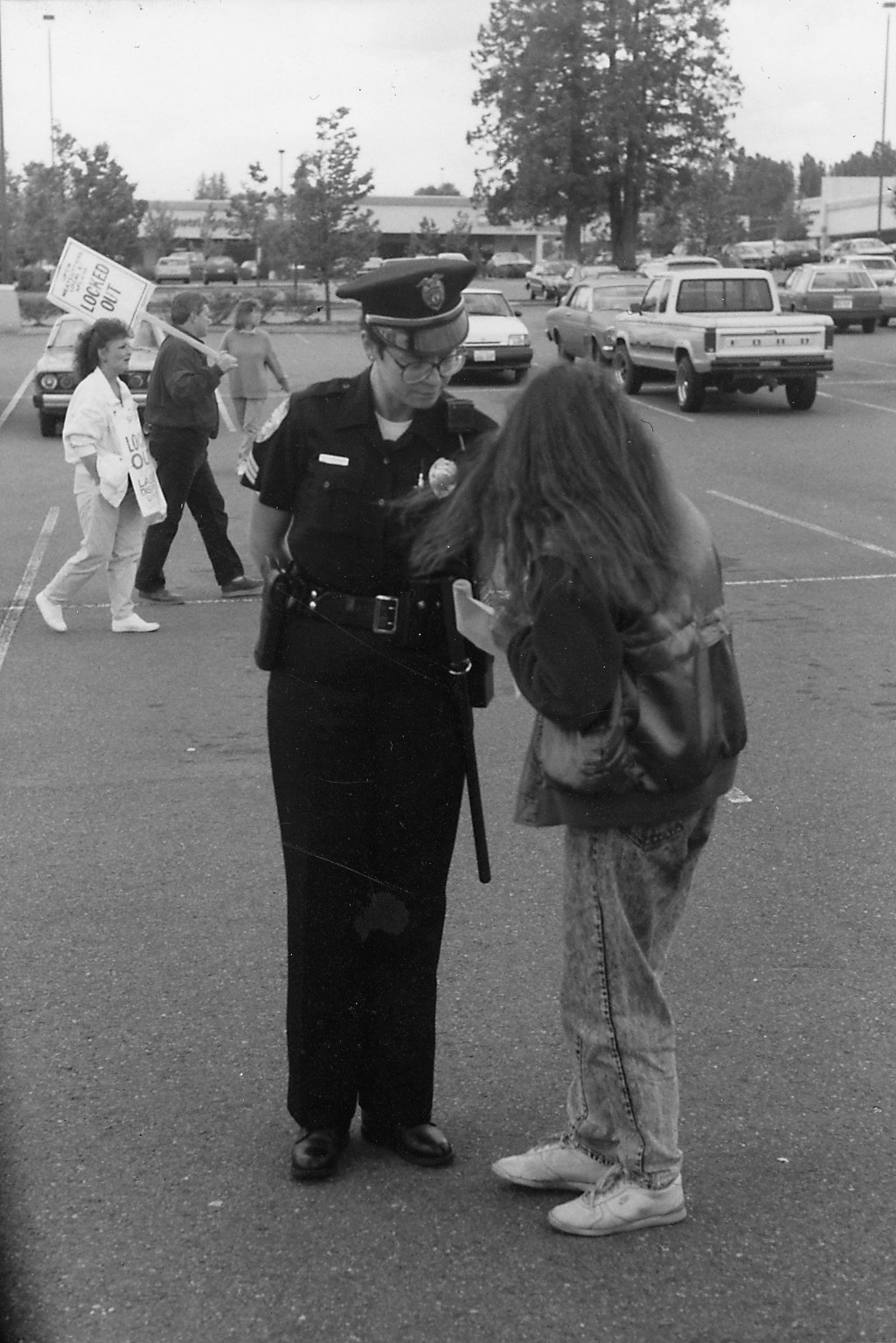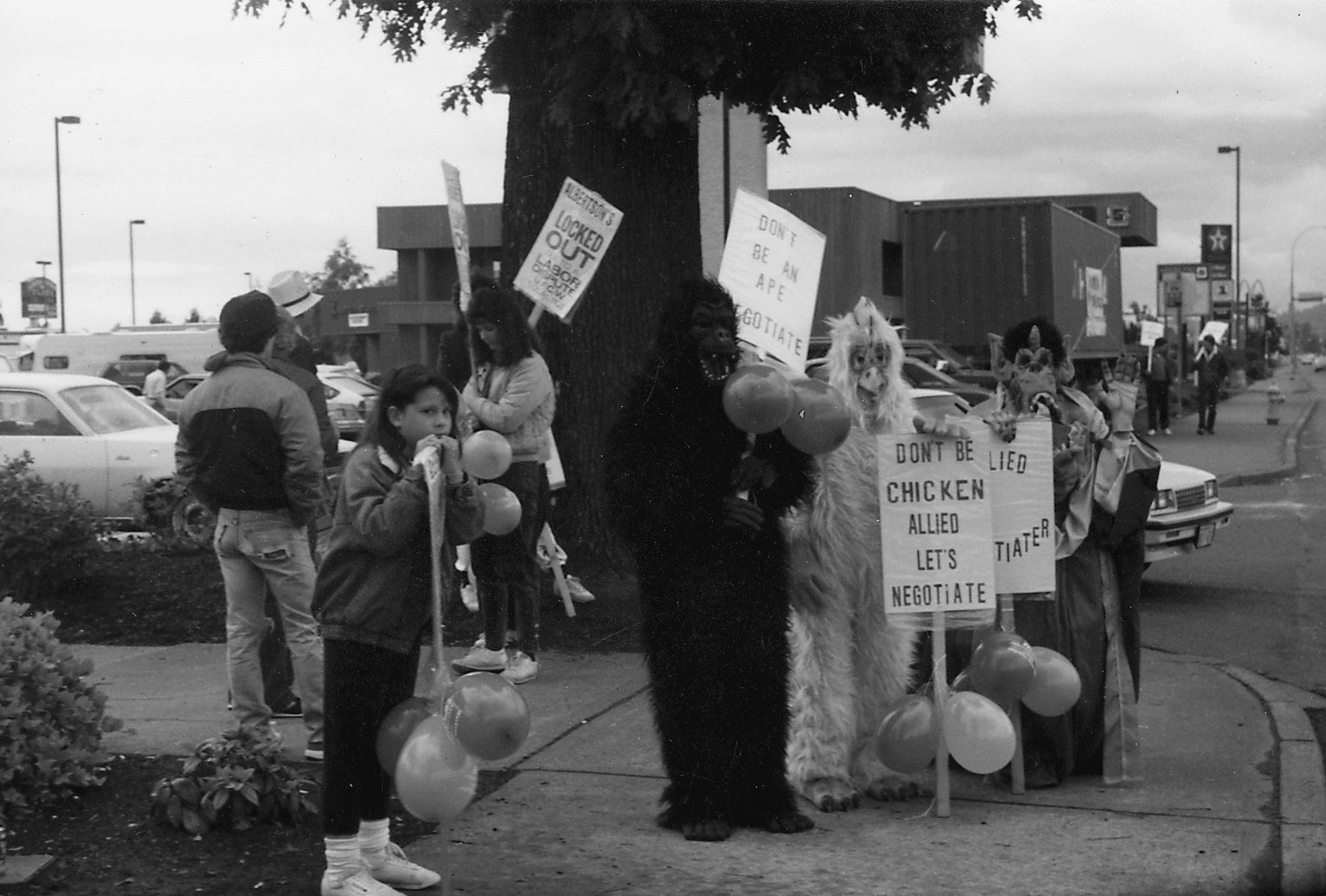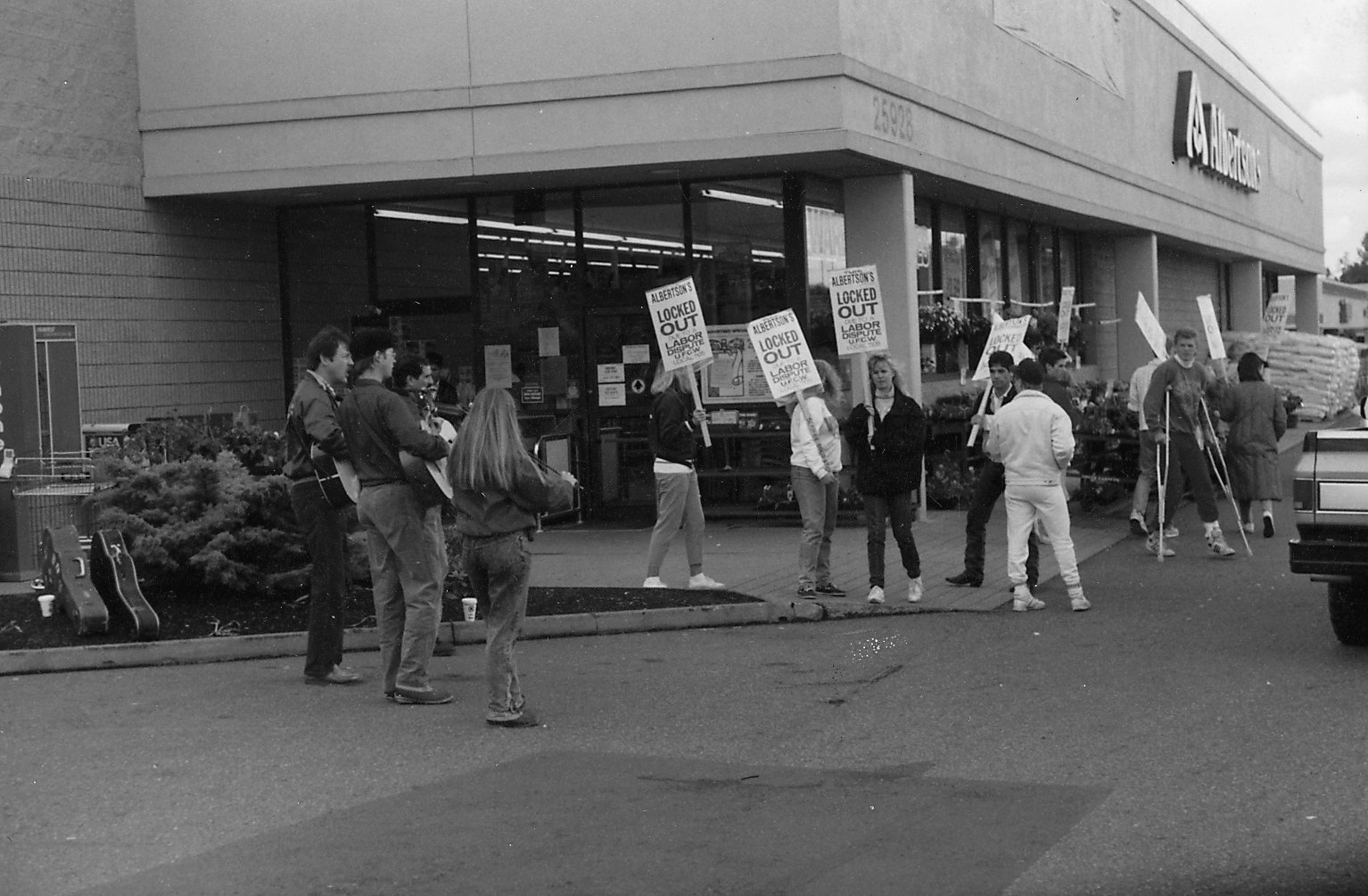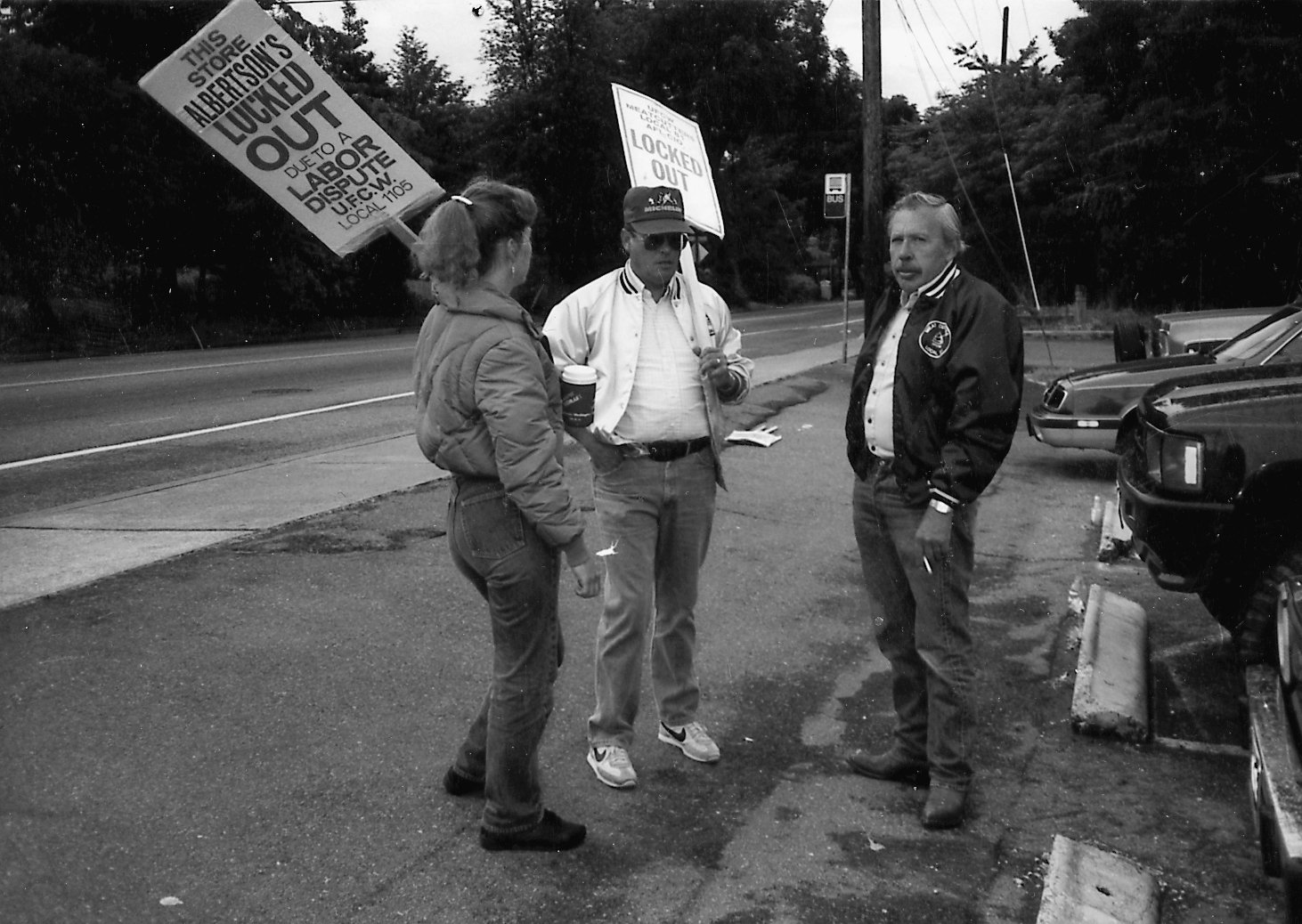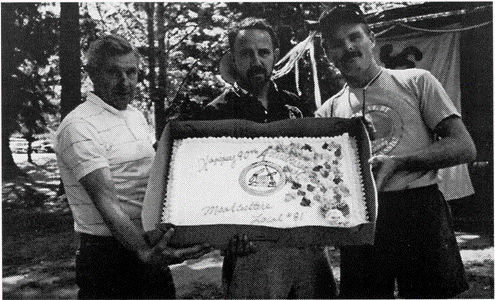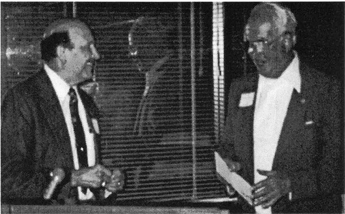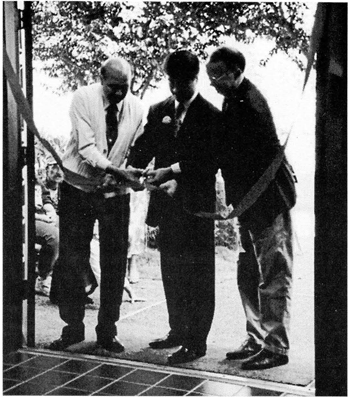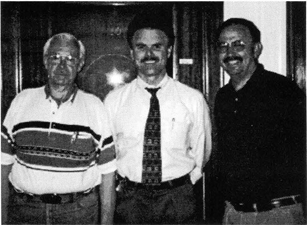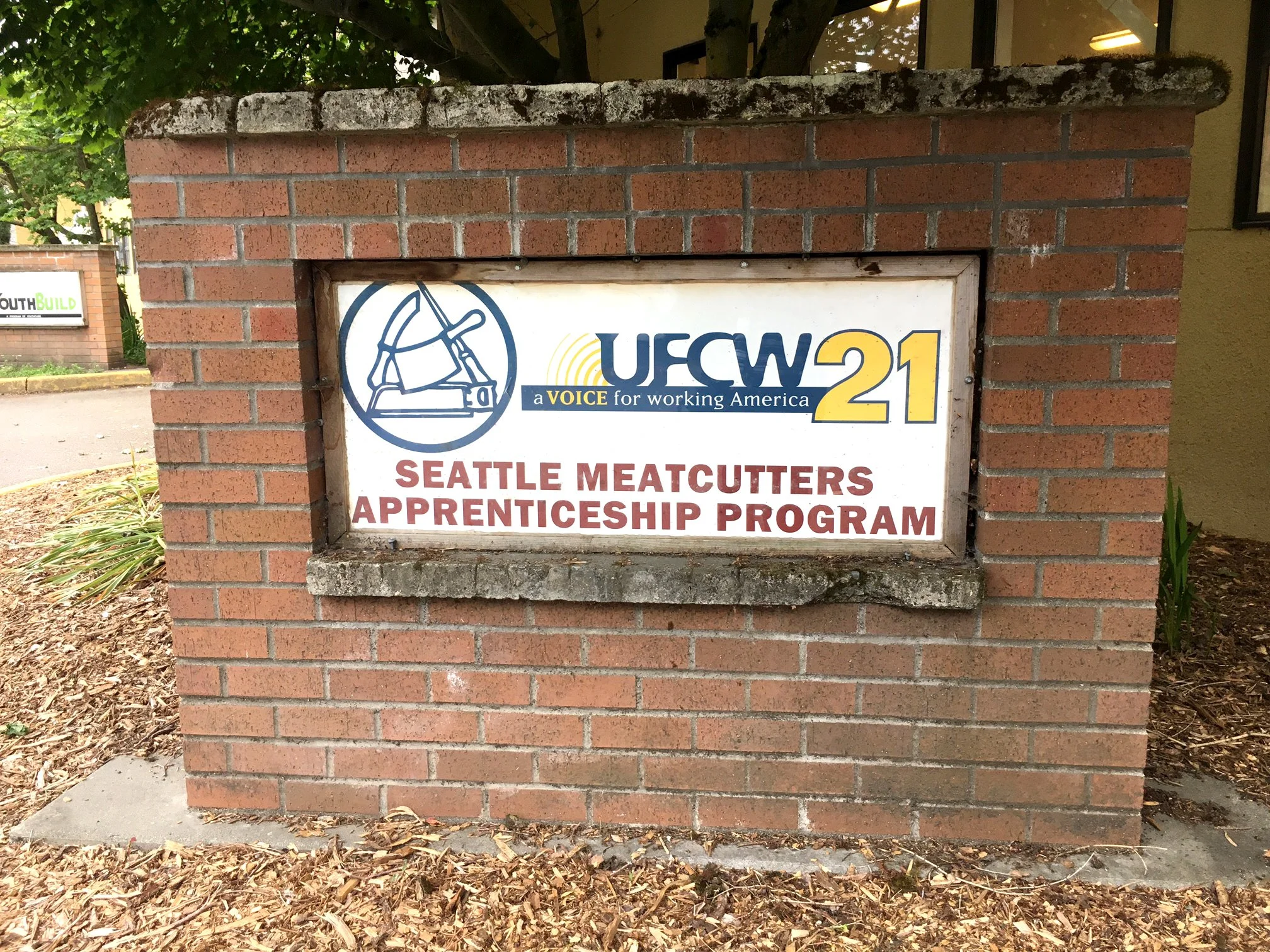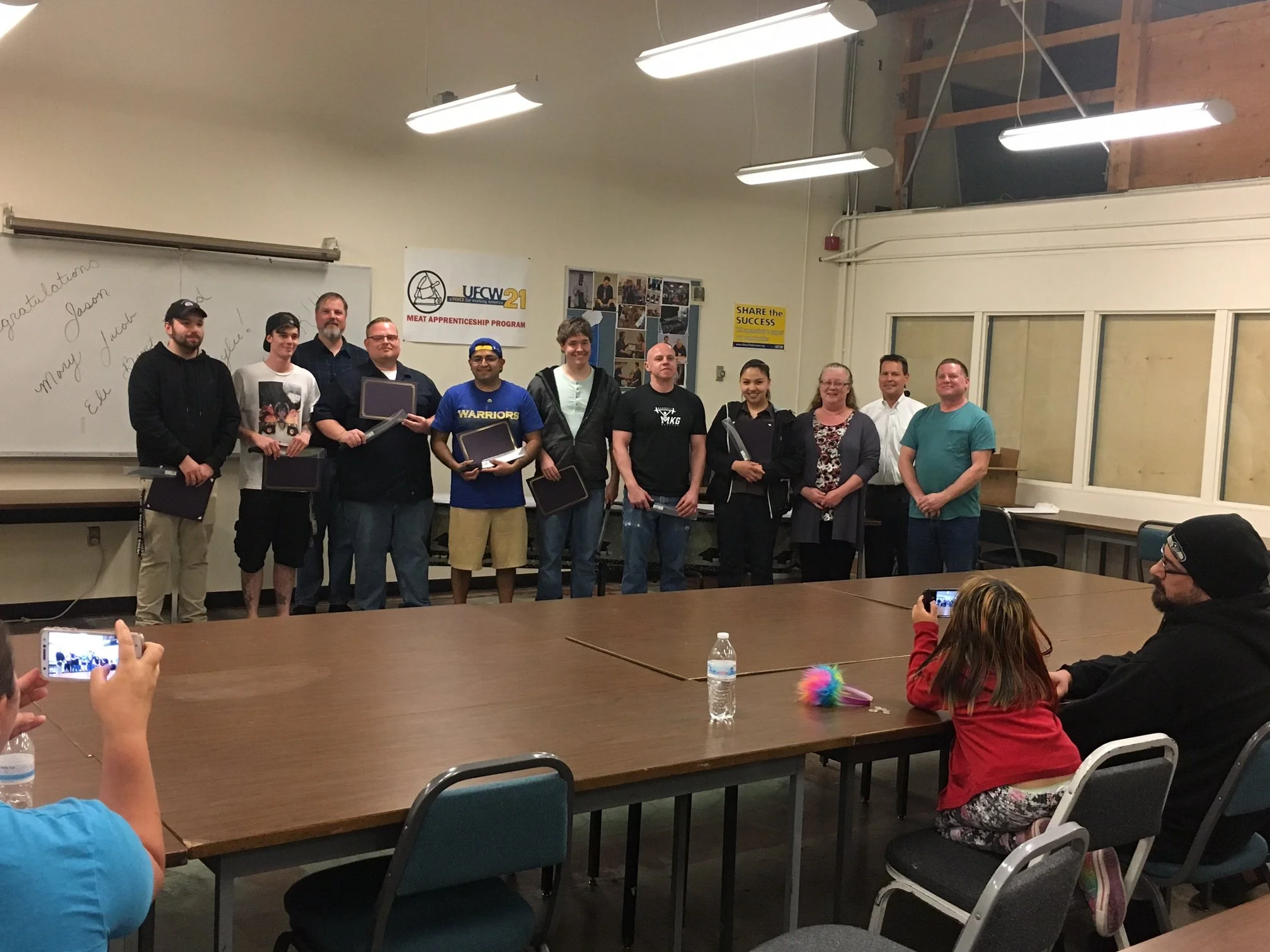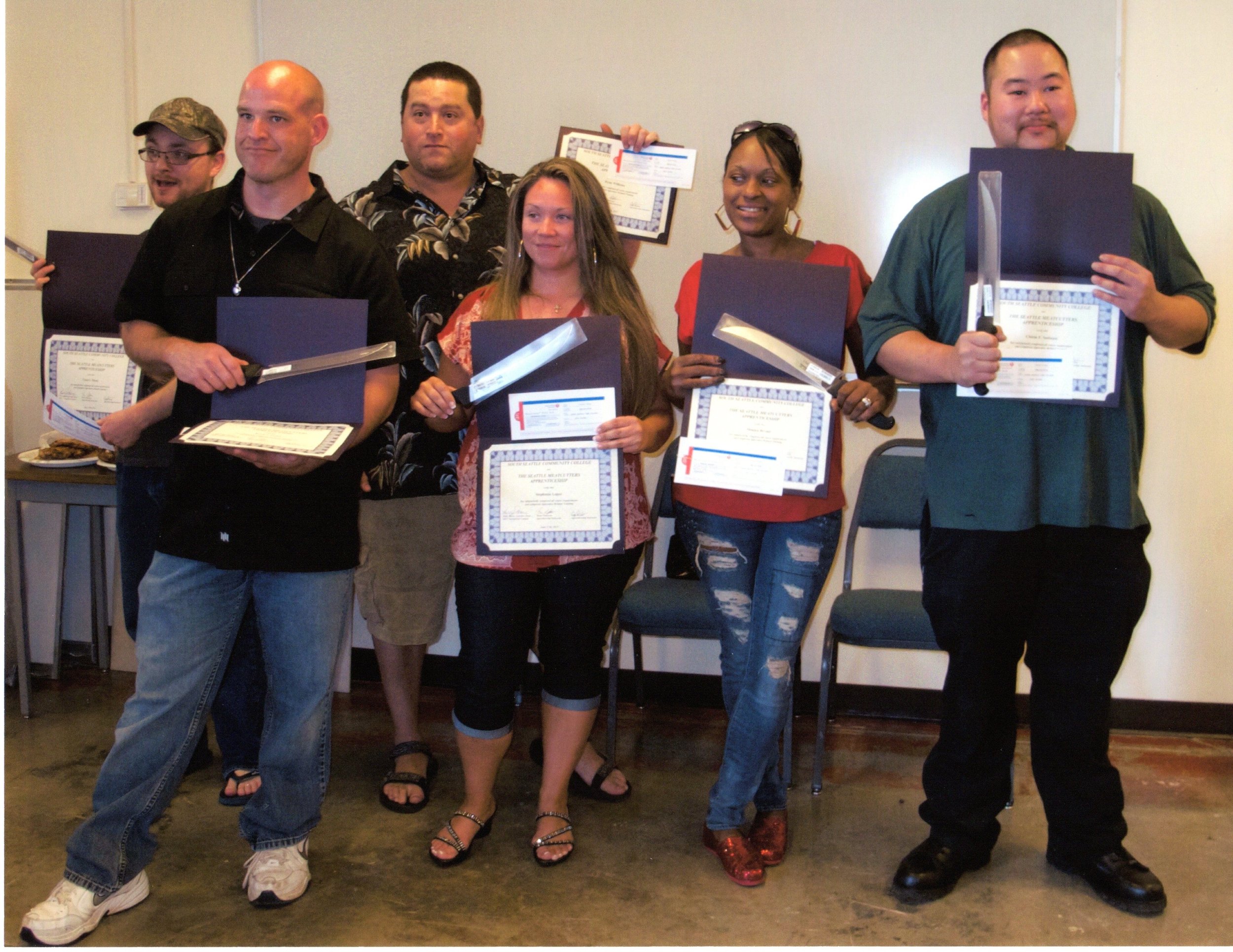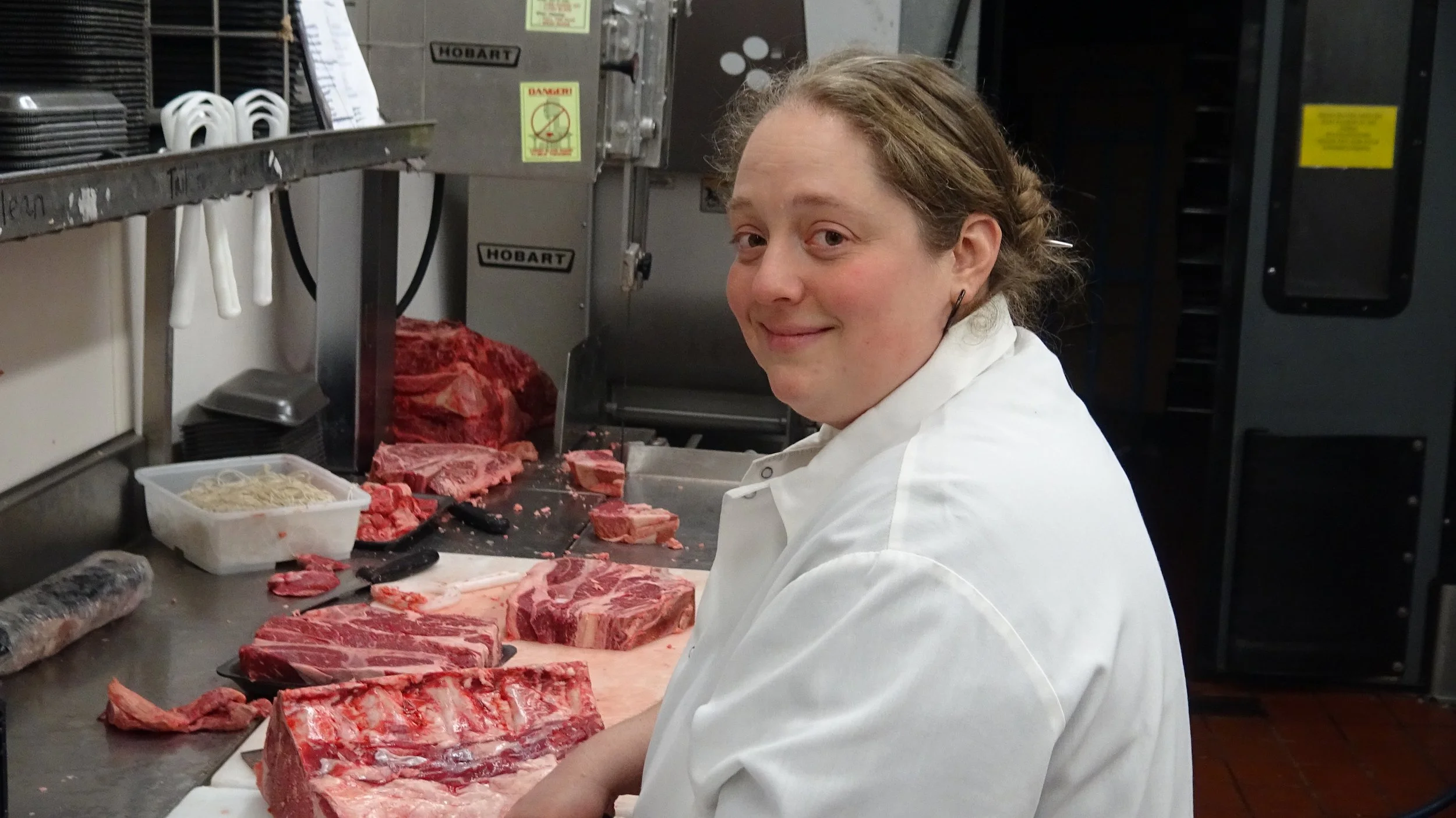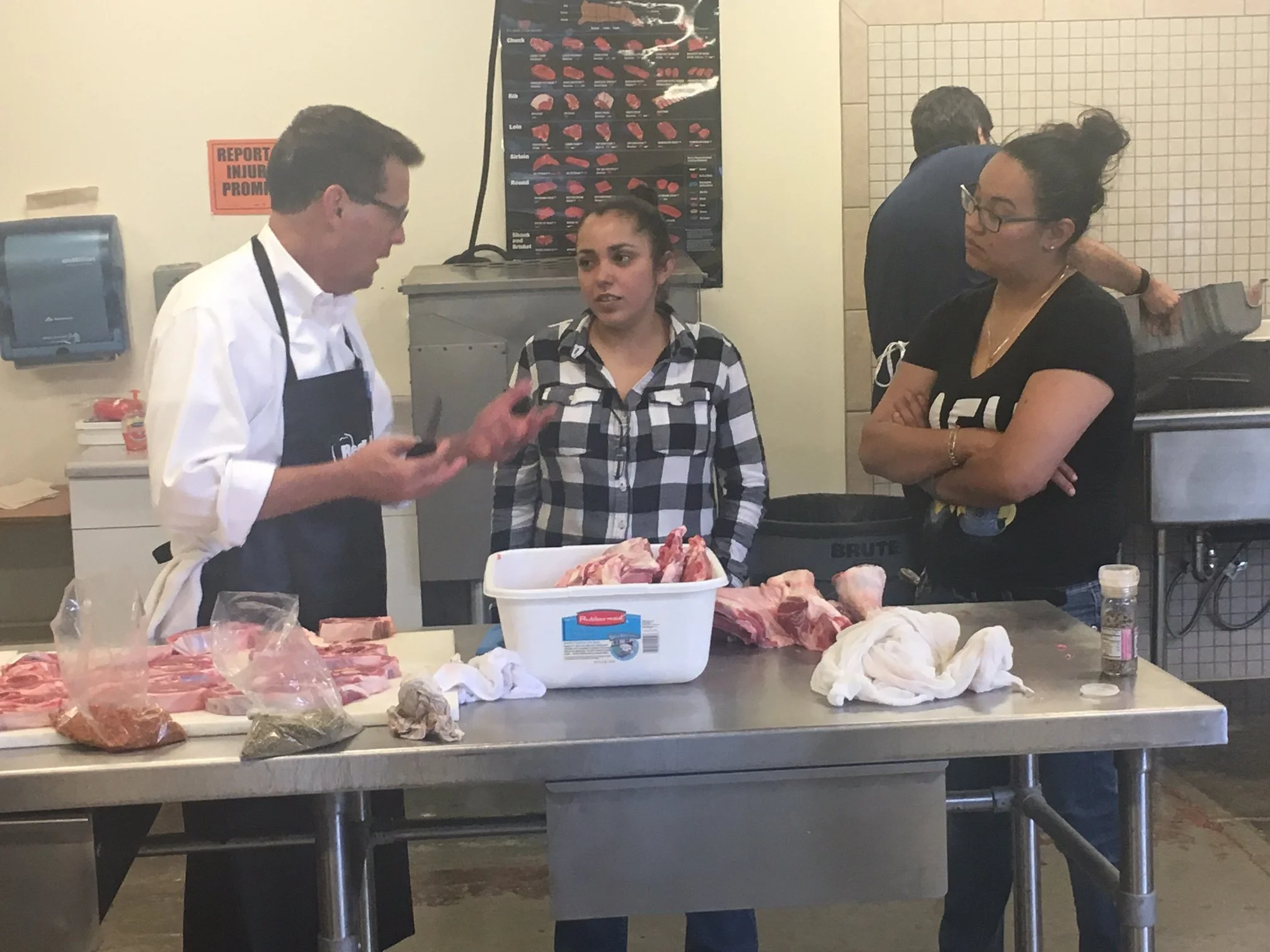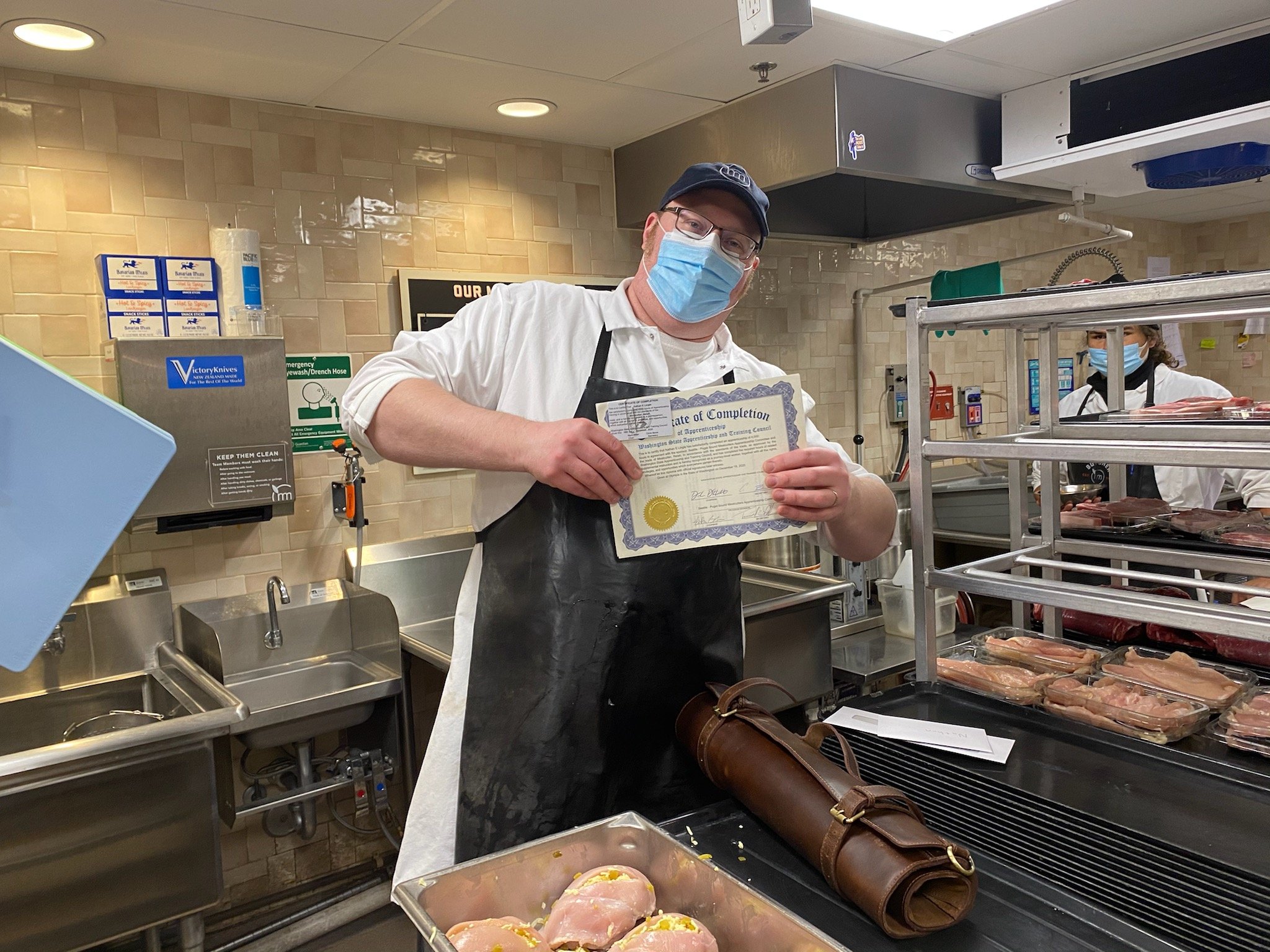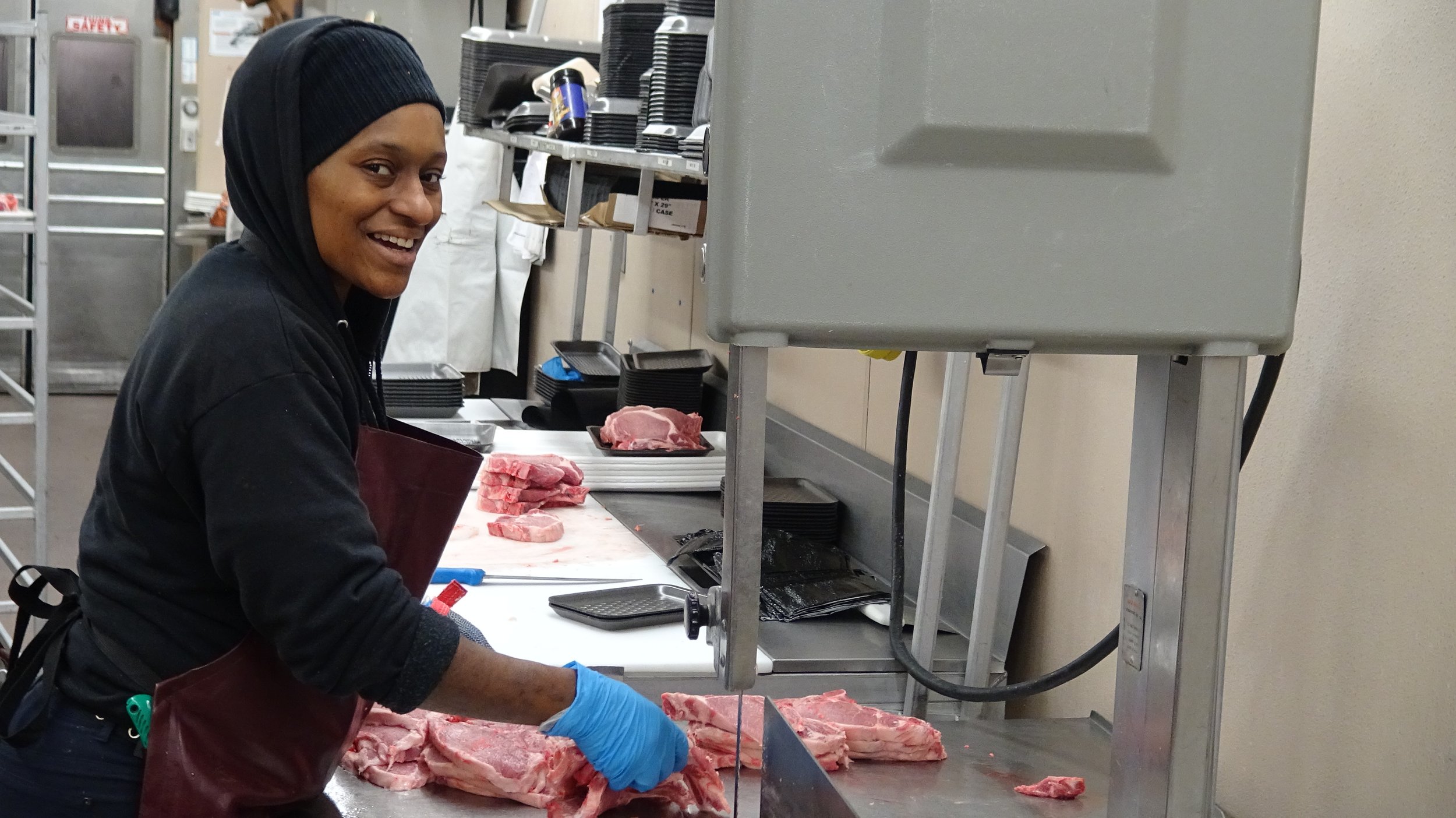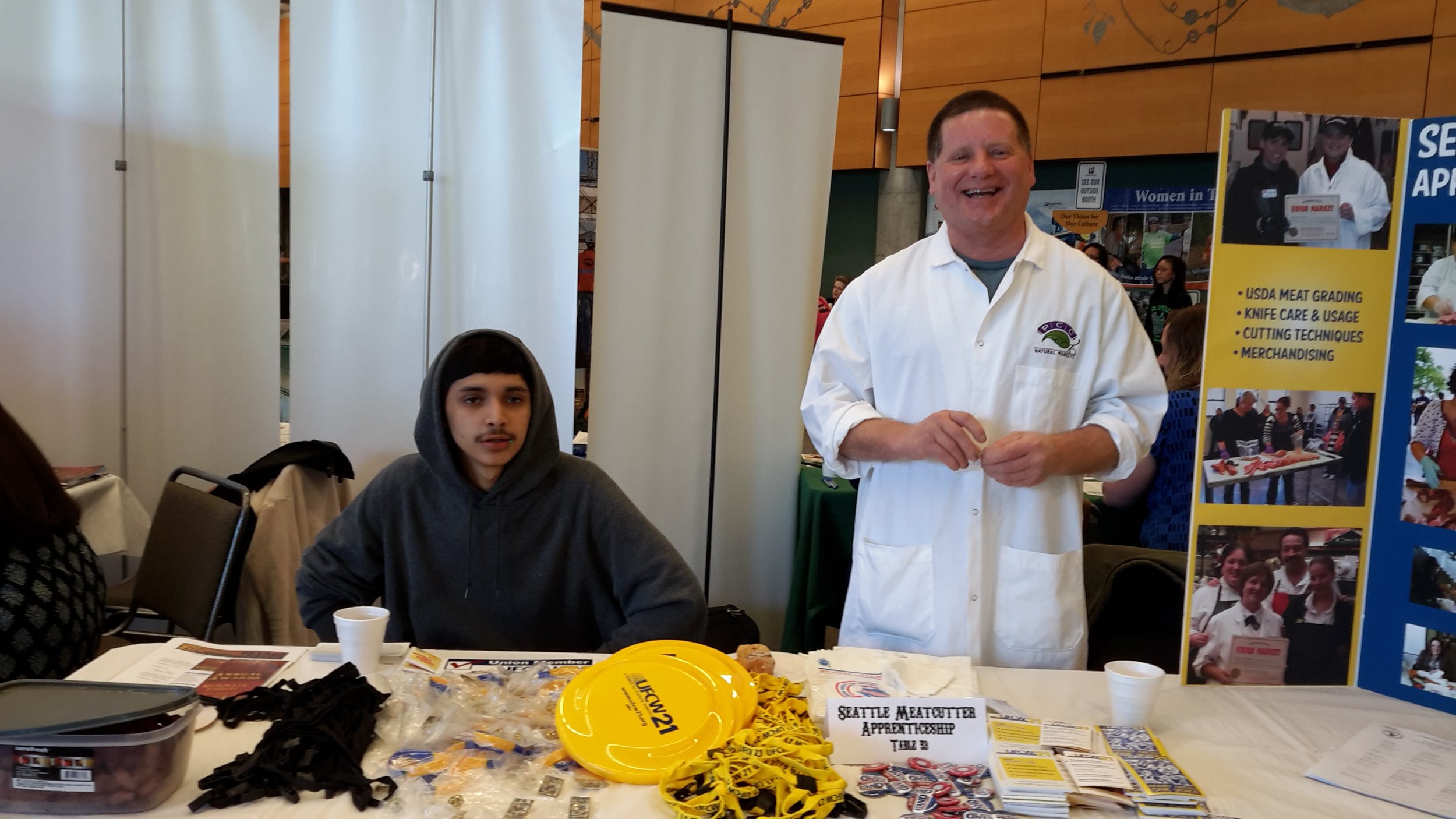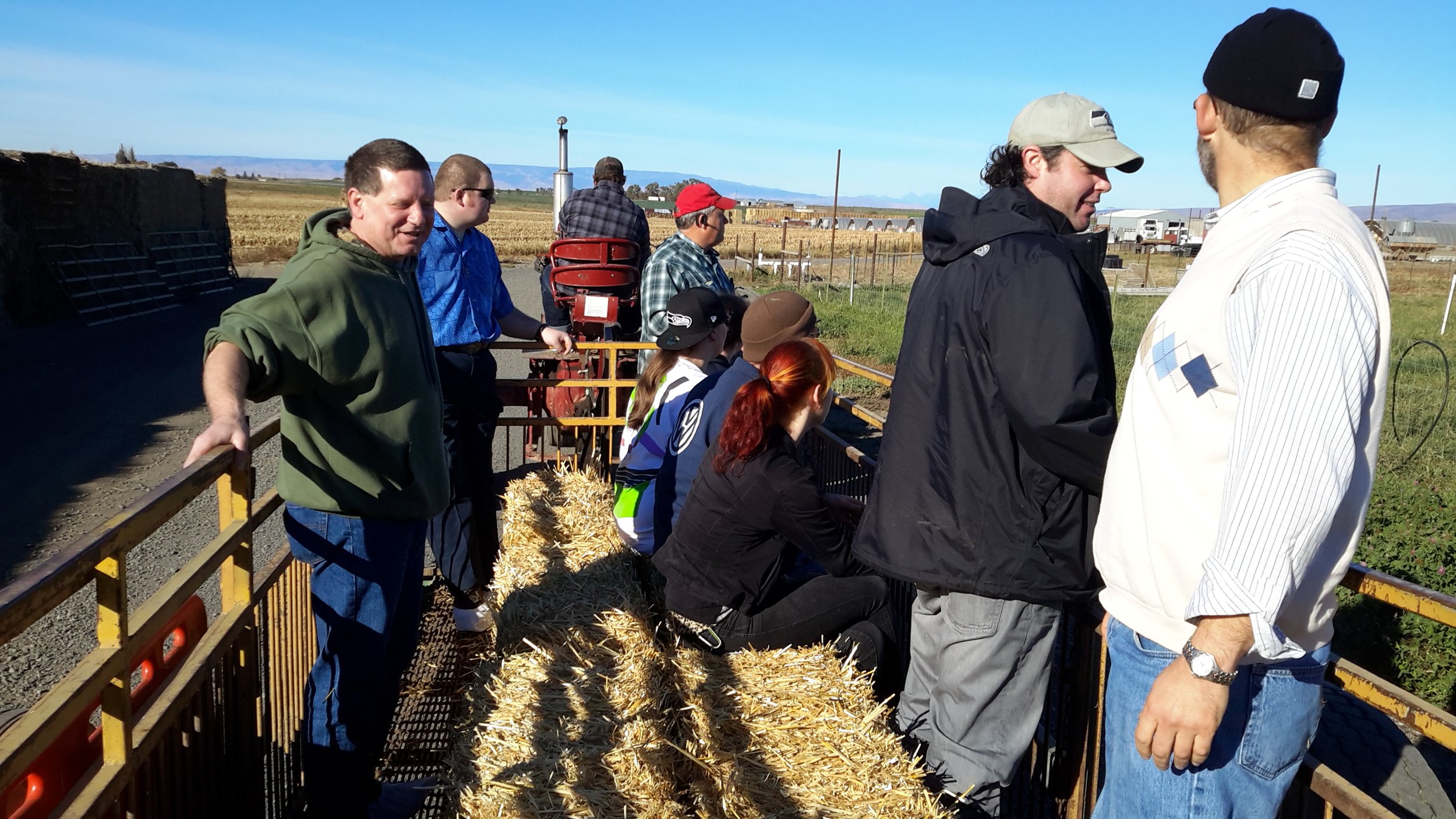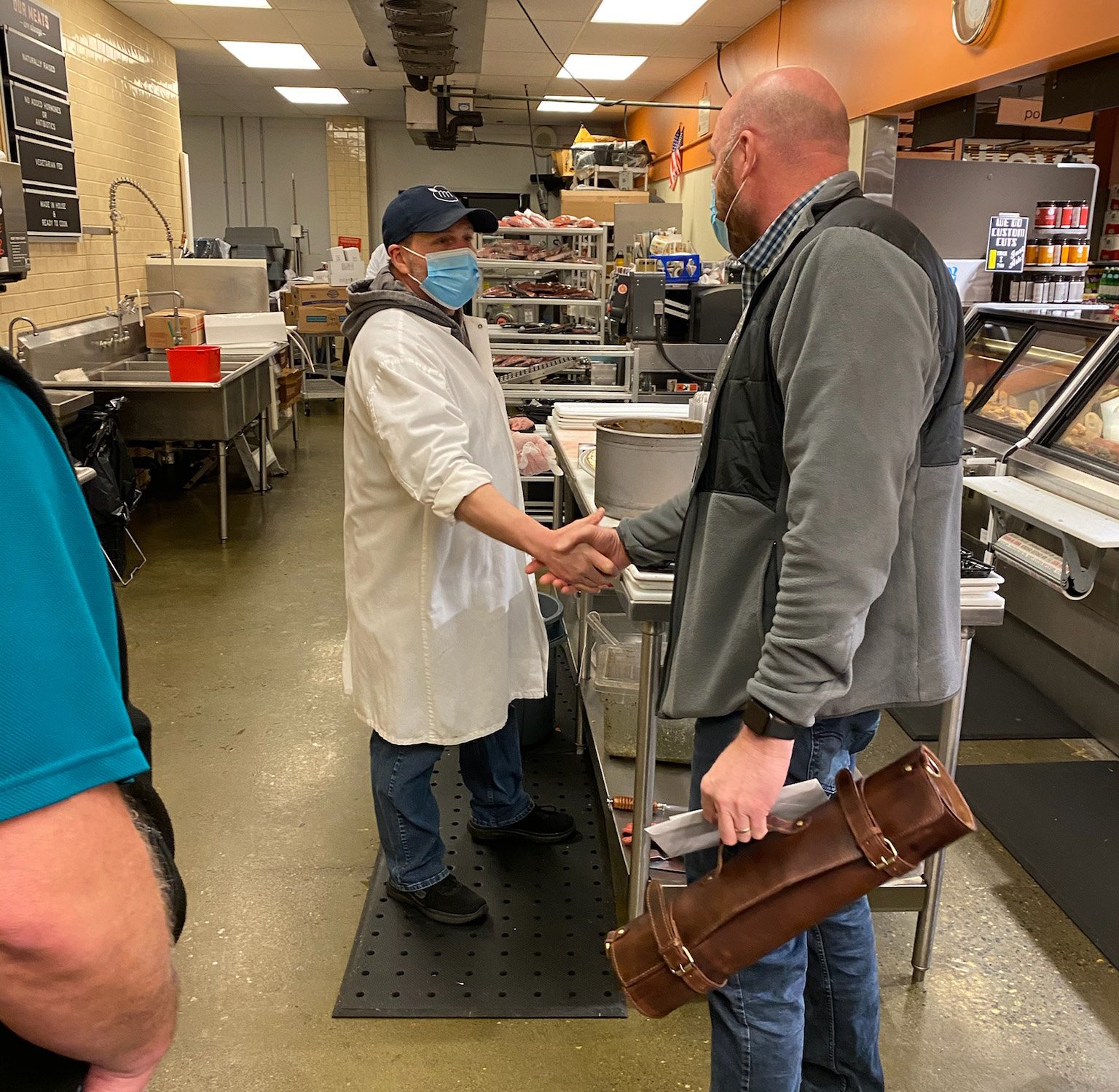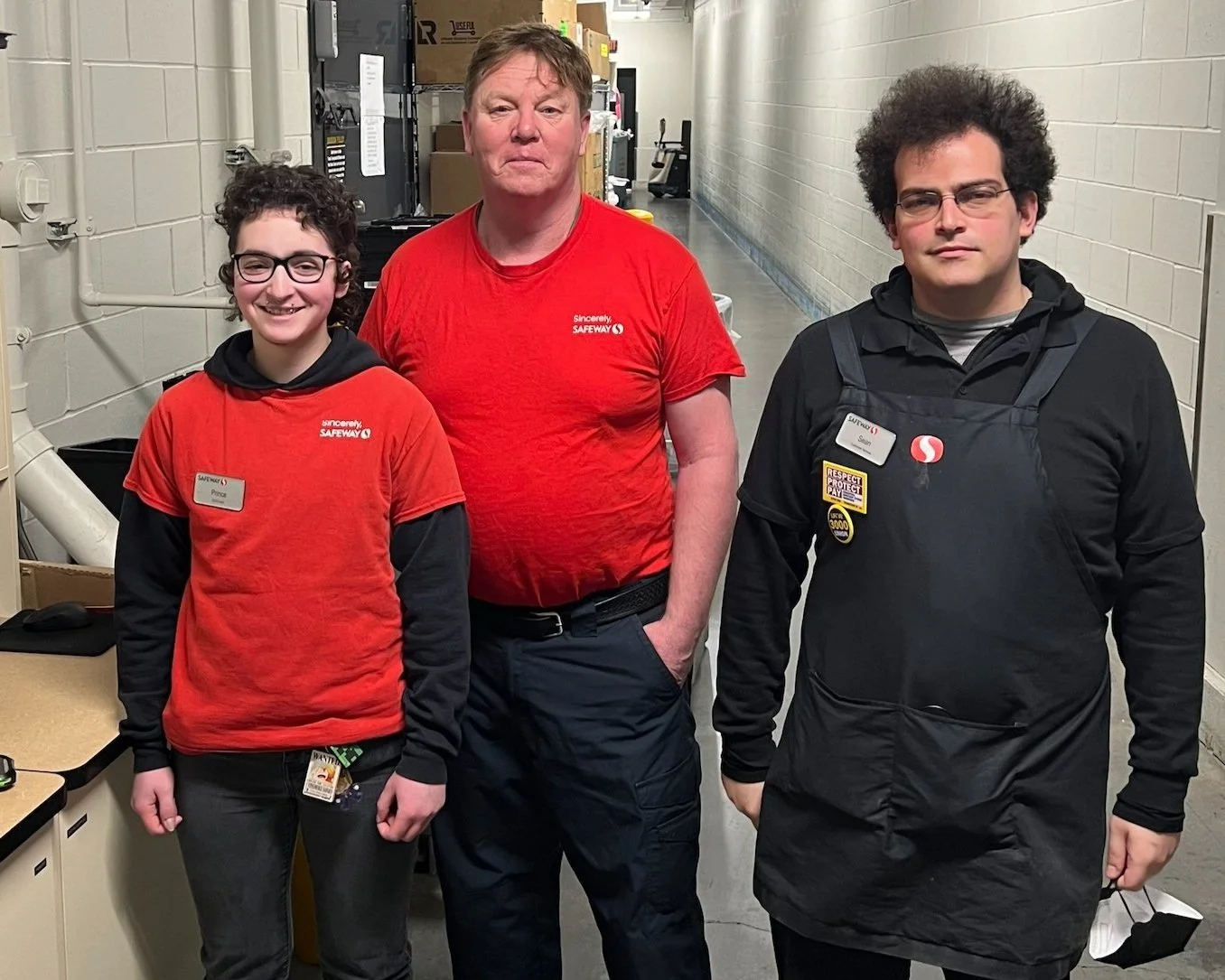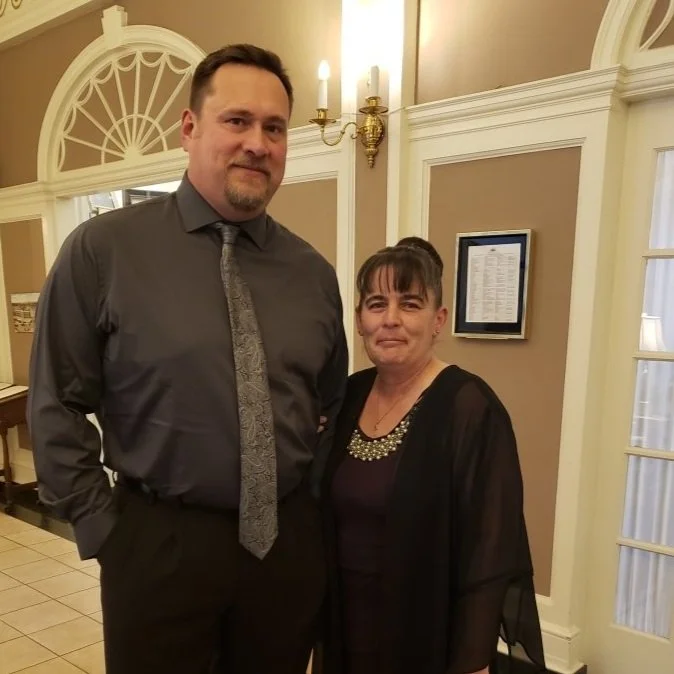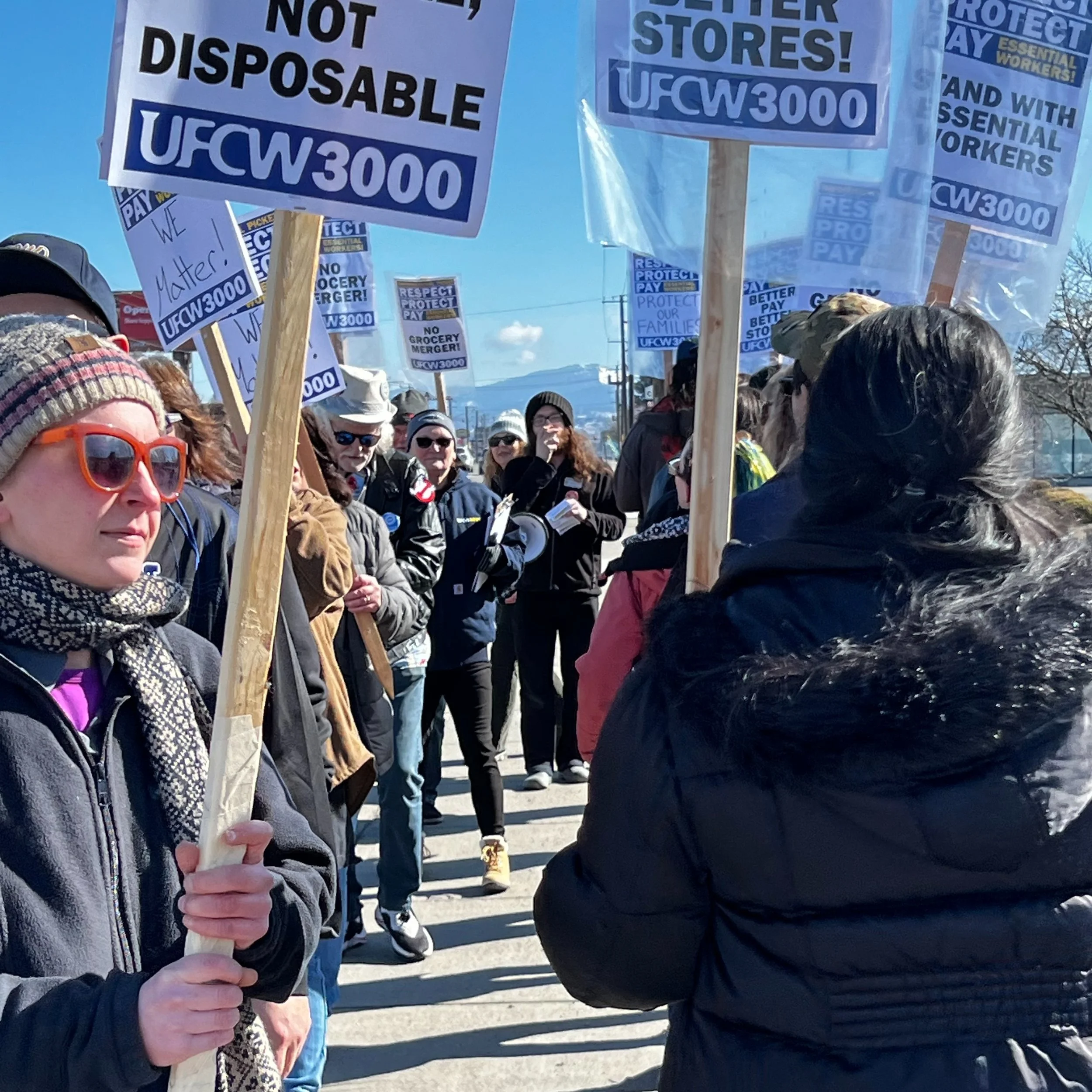Online vote: May 8 at 6:00am — May 9 at 6:00pm
The nominees are in and they are counting on you to get involved and decide who will represent PCC workers and our union by voting for the candidates you want to represent you on the Labor/Management Committee (LMC). The purpose of the LMC will be to study and make recommendations to the PCC Board of Trustees or PCC’s Leadership Team regarding:
Per our contract, our union can nominate ten candidates to send to the PCC Governance & Membership Committee (GMC) where they will, by a simple majority vote of the GMC, select the final five workers that will serve on the LMC.
Voting will be conducted via secure online vote to decide the ten nominees that will be recommended to PCC’s GMC. We are excited to announce the candidates that are running for the chance to participate and represent their coworkers!
Meet the nominees ▸
Kelly Campbell, View Ridge PCC, Front End
I’m Kelly, and I am eager to bring my unique blend of leadership, advocacy, and community engagement to the Labor Management Committee. My journey in advocacy began when I made history as the first athlete appointed Board Chair for Special Olympics Washington. This role not only honed my leadership skills but also deepened my commitment to driving positive change and advancing inclusion. With over three decades of experience as a Special Olympics athlete and more than five years serving on the board of directors, I’ve gained invaluable insights into the power of inclusion and community engagement. My involvement extends beyond Washington, as I actively contribute to Special Olympics committees at national and international levels, amplifying the voices of athletes and advocating for diversity and equity. One of my proudest achievements is leading initiatives like the Building Bridges program, which brought Special Olympics to tribal communities for the first time, addressing the unique needs of BIPOC individuals with intellectual and developmental disabilities. I am dedicated to fostering understanding and respect across all communities, tirelessly working to ensure access and opportunities for all. Outside of my advocacy work, I’m a dedicated team player, competing in various sports from softball to swimming. I’ve also had the honor of representing our community on Capitol Hill, advocating for funding to support programs like Special Olympics. In my role at PCC Community Markets for over two decades, I’ve learned the importance of community engagement and collaboration. Now, I’m excited to bring my experience and passion for inclusion to the Labor Management Committee, where I hope to continue driving positive change and advocating for diversity, equity, and inclusion in the workplace. Thank you for considering my candidacy. I look forward to the opportunity to contribute to the committee’s efforts.
Oscar Cea-Figueroa, Redmond PCC, Deli
Hello, my name is Oscar, and I am quite pleased to have been nominated by my peers to run for a position on the LMC! I am learning of all the benefits this committee will bring, being the first of its kind for our company! I’m very happy to be able to represent my coworkers at a level where we can not only present barriers, issues and concerns but also provide problem solving opportunities and trouble shooting with all the people we need to discuss these matters with. In the last few years, while working for this company, I’ve seen some changes. One of the reasons I came to work for PCC was the co op values. It’s very important to me that I continue to work with an employer who has similar interests. Since our contract negotiations earlier this year, I have been gaining so much understanding of the importance of partnership. Participating in the informational pickets helped me see the bigger picture, standing together is where the power is! There is so much information to read in our world, so much to learn! I really enjoy doing the work in the deli, communicating, and working with my deli team. I’m happy to know that I have the chance to be a part of the committee that will bring change that will benefit all.
William Chiang, Bothell PCC, Deli
I’ve been with PCC for 7 years, came from restaurant background in cooking. Have been a deli cook, clerk, and cheese clerk.
Emily Dawson, West Seattle PCC, Produce
I'm thrilled to have the chance to join the Labor Management Committee. I'm eager to dive into understanding PCC's financial model and how business decisions are made. My aim is to promote better communication and understanding between workers and non-union management, bridging that gap and fostering a more harmonious relationship between office staff and in-store workers, while focusing on suggesting workplace enhancements that will improve the work environment. Additionally, having talked with many of our coworkers from diverse ethnic backgrounds, I am confident in my ability to represent all concerns within PCC. With your support, I'm excited to make a meaningful impact and enhance our experience here at PCC. Thank you for considering me for this role.
Bert DeCoy, Redmond PCC, Deli
I have been with the co-op for 11 years. The whole time at Redmond, in the deli. Roughly a year of counter (opening, closing, and mid shifts), then the last decade as a cook and hotbar runner. During my time, I have always tried to provide the best experience for our members whether it's through personable and knowledgeable service on counter, answering a many customer questions as i can, or making food whose quality is worth the price tag. I believe firmly in working as a team, in communication, and the need to be open... even if it means having difficult conversations. These were the values handed down to me by those who trained me and I try my best to pass them along to those who have come after. I talk with our members on a daily basis, about the things they love, the things they miss or honestly the things they really don't care for in recent years. I extend this same availability to my coworkers who know I am someone they can come to to express concerns, field questions from customers, or generally expand their knowledge of what we do. One of my greatest strengths is my connection to my team mates, and to the needs of our members. I believe strongly in the need for everyone's shared participation for this co-op to do its best; from members, to employee members, to office staff, if every aspect is collaborating then I think we can maintain that spark that made us special for over 6 decades. Thank you for your time.
Nellie Demeerleer, Ballard PCC, Front End
I have 3 years experience as a disability advocate, and when I'm passionate about something, like making sure PCC employees, especially those like me, who work on the front lines and represent the company get the respect, safety in there stores, involvement in company decisions, and pay that we deserve, I will speak for those who may not have a voice, and make sure that everyone is represented equally and fairly, no matter their background.
Cina Ebrahimi, View Ridge PCC, Grocery
I believe Cina will be able to represent the workers interest accurately. He has spent a good deal of time and effort over the last year to interface not only with workers at view ridge but across PCC to better understand the needs of PCC Workers as a whole. He participated as a committee member in the recent contract negotiation and is a shop steward for the view ridge store. Cina is familiar with the cooperative model and has experience from work in finance that make him uniquely prepared for a position in the Labor Management Committee.
Nich Fallon, Issaquah PCC, Produce
Prior to working at PCC I managed a small independent grocery store on top of running the produce department. That role exposed me to the different perspectives amongst the management, employee, and customer relationships. It helped me see extra problems but also additional opportunities to solve those problems. I am passionate about finding ways to improve the working and shopping environment better for everyone. I think being on the LMC would be a great outlet for me and that I would be a great contributor to the LMC. I want to see the LMC become a permanent fixture and stepping stone for more labor representation on the PCC board.
Quil Freitas, West Seattle PCC, Clerk
Hi, Quil Freitas here, produce clerk at West Seattle for over two years. I was involved with negotiations and kept as close an eye on the finances as possible. I advocated for a "no" vote against this current contract. I believe information workers have received has not been sufficient. I see the Labor Management Committee as a flawed but continuing effort to win a fair portion of revenues for workers to have living wages.
Miles Gensoli, PCC Fremont, Produce
Miles Gensoli, 47yrs old. My wife Karen and I have been married for 13yrs. We have 2 children Tristan is 12 and Kiara 8. Lived here in the PNW since I was 8 years old when my family migrated from the Philippines. My favorite pass time is spending time with the family and anything outdoors( hiking, camping, gardening, jet skiing). All of my work experience have been in grocery retail. Been a member of UFCW since 1994, 6 years at PCC. I am the Produce Coordinator at the Fremont Location.
Thnley Gyatso, PCC Fremont, Produce
I believe in that I fit for the Pcc Labor Management committee. I want workers treat well and pay well and appreciate their any levels of contributions Pcc recognizes. All works voice most heard.
Marlin Hathaway, Greenlake Village PCC, Beer and Wine
Marlin Hathaway is the Beer Wine Spirits Specialist at PCC Greenlake Village and has worked for PCC for almost 3 years. He is a UFCW3000 Union Shop Steward and a founding member of PCC Workers United. Marlin is a steadfast advocate for living wages for all PCC workers, personally organizing and reaching out to workers in all of PCC’s stores in the struggle for the retention of Hazard Pay, and its expansion for all PCC workers. He was a leader in the campaign for One Wage Scale for all PCC Workers in the region, a base wage of $25 per hour, $30 for Journey, and a 3-year path to Journey. As a member of the Bargaining team this last contract cycle, Marlin fought hard for a base wage of $25 per hour for all PCC workers, a path to Journey in 3 years, and $30 per hour for Journey folks, and was an initiator of the idea of creating the LMC. Marlin has been a restaurant, grocery, and hospitality worker his entire life, from age 15 to 60. He has tenacity and will fight tooth and nail to uphold the needs of our workforce.
Kerry Hudson, Burien PCC, Front End
Hi my name is Kerry, I'm a cashier at Burien. Over the course of 9 years at PCC, I've worked in just about every department. I understand the experience and needs of roles throughout the store. I believe that there are opertunities throughout the co-op to trim the budget without punishing staff, making our co-op better for staff and the community. I think that as we've grown we have lost some of our co-op values and management refuses to see any solution other than cutting labor hours. It's time that we look at the whole picture and act more like a co-op in all facets.
Chloe Jett, Bellevue PCC, Beer and Wine
I come from North Carolina, a state which ranks 49th in the country for worker’s rights. I’ve seen firsthand what can happen when unions aren’t given the necessary power and respect they deserve. As an LMC member, I would see to it that worker’s rights are observed to make PCC an ideal place for labor.
Jackson Jones, Kirkland PCC, Meat Dept.
I have worked at several premium grocery stores and have gained a unique and solid understanding of the strategies that are helpful in navigating the relationship between corporate and worker interests. My experience has allowed me to gain respect for different cultures and how they do things, allowing me to find creative solutions in a variety of ways. I am dedicated to making our work environment safer through my role on the safety committee. My goal in nominating myself for the LMC is to improve employee’s knowledge, which will invite longevity & reduce turnover of the employees as well as foster a direct and open dialogue with leadership team.
Kris Jamison, Kirkland PCC, Deli
I've been with UFCW for over ten years and have always held a sharp interest in contract negotiations and try to stay as involved as possible. Info pickets, zoom meetings, CAT meetings, you name it. And because of my friendly, outgoing nature, people have always naturally gravitated toward me with questions or comments about the Union and the contract. I've been approached several times about becoming a Shop Steward as well. The LMC however appears to be a very unique opportunity, and one that instantly called to me once I read how it will function. So, I'm very excited to play a vital role in shaping the next contract and influence how my work environment is structured. Thank you for your consideration.
Scott Jue , Central District PCC, Receiver
I worked for Central District PCC as the Receiver for the last 4 years. I previously worked for Safeway for 28 years with 8 years as a Safeway Assistant Store Director. I have experience in sales projection, scheduling and order writing, expense control, ad planning, merchandising, inventory and shrink control, hiring, employee evaluations and terminations. I served on the Safeway Diversity Board and was a Safeway Division Safety Supervisor assisting 37 stores in 3 districts. I have a BA from Seattle University in business management and an MBA from the University of Washington. I am also a United States Marine and served with the Washington Army National Guard. I deployed to Iraq (08-09) and conducted combat security operations. My outside interests include Cross Fit, cooking and spending time with my 2 black labrador dogs. As my store’s Receiver I work and interact with all departments and see the success, problems, opportunities, frustrations that occur daily. I believe I can provide a voice in making PCC a more profitable, adaptable, efficient, diverse and safe workplace. I believe in the 80/20 rule. Spend 80% of the time preventing, anticipating and solving problems and 20% of the time reacting to problems we cannot control. I can reduce the gap between PCC Corporate and retail front line employees. I ask for the opportunity to assist in making PCC profitable again as we look to our next contract.
Chris Maraslo, PCC Ballard, Grocery
PCC employee since 2019 and has worked through the pandemic. Understands the importance of proper support and care at the workplace. Chris is by far the fiercest advocate for workers' power that I have ever had the pleasure of knowing. If he were elected to the committee, I have no doubt at all that he would stand for the workers and advance our cause without fail.
Scott Norman, West Seattle PCC, Receiver
I am a true Seattlite. Born and raised in Ballard and have lived in the south Seattle area now for the last 32 years. I have worked in the grocery business for most of my adult life and have been with PCC for 6 years now. I hope to receive your consideration and vote because I am passionate about fairness, respect, and accountability. The Labor Management Committee is a great opportunity for all of our voices to be heard. With my background in public service and the grocery industry, I am a strong candidate to help ensure that our voices and ideas are being weighed and taken seriously, in order for PCC to be prosperous well into the future. Thank you for your consideration.
Scott Shiflett, Redmond PCC, Meat Dept
My name is Scott Shiflett and I am excited to have this Golden Opportunity to run for a position on the LMC! I’m looking forward to the work that we’ll accomplish, the relationships that we’ll build and the improvements we will bring through the work of the LMC. This is quite an honor to potentially be involved at the ground floor level of building this very important committee! I am a proud worker of PCC who brings 35 plus years of experience through my service in the grocery industry. I’ve seen how different departments are managed, the successes and failures of some practices and been a part of countless conversations with coworkers regarding the concerns they have about workplace matters. Serving on the Safety Committee for this same period of time has given me insight into this critical topic of discussion that we all must be attentive to. As a Bargaining Team member for many contract cycles, I have been honored to serve my coworkers by bringing their voices to the Bargaining table. There have been many late night ( and into the wee hours of the morning) bargaining sessions where both the Company and the Union were so close to reaching an agreement that we didn’t want to end our session! I’ve seen PCC change dramatically from the original family/neighbor style co-op to the now more corporate style. There are pros and cons to both. I feel we need to work together to find a harmonious blend between the two styles. To maintain our roots while growing and keeping instep with our changing membership and the dynamics of the grocery business as a whole. We must get back to our roots and be the family/neighborhood store we used to be while keeping up with the modernization of the grocery industry. We will work on finding the perfect balance to bring forth a happy and caring yet profitable company. I ask for your support, your vote as we move ahead in bringing forward the PCC we need, the values we must hold dear and foster the commitments we have to our community! Let’s cultivate the success of this company together!
Andrew Shustov, Bellevue PCC, Cheese
The first lesson I was taught when I started working in the grocery industry was that how a customer feels about their experience with a store is very strongly weighted among their other grocery shopping concerns (such as how much products there cost, a location’s convenience, or the quality of items). Similar considerations also very much apply to those of us who have chosen to work in the grocery industry. (How does it feel to work here? What is the pay? How convenient is it?) When I first started with PCC in 2019, the balance among these considerations on the employee side seemed very healthy among workers. Arrival of present year, and I’ve already watched coworkers who genuinely love the company and their own store locations vehemently vote “yes” on a strike ballot, and fully accept all of the personal uncertainty, anxiety, and financial awkwardness that comes with such a decision. Such votes were (by the majority) not made lightly. To run a successful grocery it is important to balance the above concerns of customers (or they will stop shopping). Likewise, to succeed in contract negotiations it is important to balance the above concerns of workers (or they will not accept the contract negotiations). My interest in the committee is to advance awareness toward worker concerns with the same level of enthusiasm, care, and practicality that any of us would bring toward the weight of shopper concerns.
Jayne Sonesen, PCC Fremont, Meat
Cares greatly about coworkers, and the future of the company as a whole. Views the company as a career and not just a job and is invested in its success.
Christopher Trebaol, Bellevue PCC, Produce
Christopher Lee Trebaol is Produce Lead at PCC Bellevue, starting with the company in summer of 2020. He is currently on the Worker Health and Safety Committee and founded the first Bellevue Worker Caucus Committee, and performed duties as Bellevue Shop Steward from 2020-2022. To Christopher the LMC represents an opportunity to elevate the unique concerns of all PCC employees, as well as take the first steps towards creating a more equitable Co-Op across the board. He hopes to address concerns around internal communication, budget, personal development and promotion, as well as provide a voice and expression to the varied and unique concerns of everyone within the company high or low. He hopes to bridge the many divides within the company, with charity and equanimity for all, and malice towards none. “The best days of PCC are ahead of us if we are all willing to reach out and take hold of them.”
Gabriella Von Ins, View Ridge PCC, Front End
I first started working for PCC in January 2018, and since then have worked in multiple stores and in various roles and departments. I am now currently a PIC at the View Ridge Store. My goals in being a PIC is to foster strong avenues for communication between staff members, empower staff to advocate for themselves and each other, and to provide resources for staff to safely and efficiently complete their tasks while finding a sense of pride in what they do. I believe that being a part of the LMC will allow me the opportunity to bridge these goals across the co-op, and collaborate with others in making them not only the reality but the standard.
Emily Weisenburger, Issaquah PCC, Health and Beauty
In 2023 I was a member of the bargaining committee where I was given the opportunity to listen to not just two sides of an argument, but many during negotiations. Back in the store, I was asked to explain the decisions and compromises. I am a member of the Worker Caucus Committee because I believe that workers should be heard and I want to facilitate that to better open the lines of communication between workers and managers.





